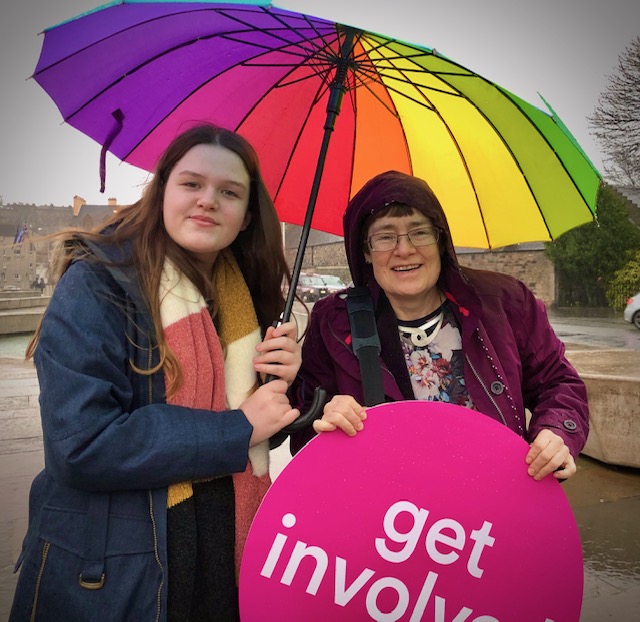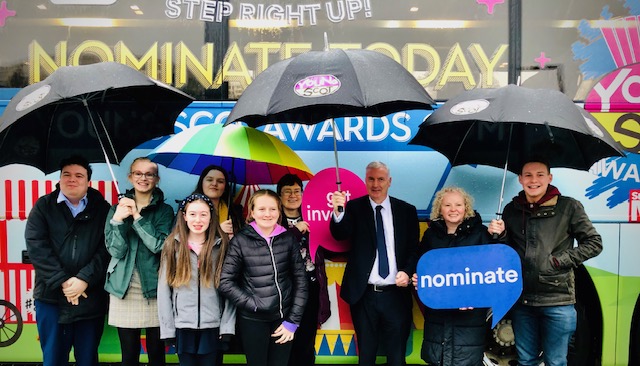News (ARCHIVE)

If you’re looking for a new challenge and a chance to be involved in Scottish politics at an exciting time, I am recruiting for a communications officer and assistant caseworker (details of the jobs below). I look forward to hearing from you.

Was pleased to submit a Parliamentary motion supporting North Edinburgh Arts who have just secured £156,000 from the Scottish Land Fund. The funds will enable the charity to continue the regeneration programme of the land and building around MacMillan Square, after a recently-agreed community asset transfer from The City of Edinburgh Council.
North Edinburgh Arts will work in partnership with the Council to deliver a community and neighbourhood hub to promote culture, learning, work and wellbeing, including a new early years centre, library, affordable homes and refurbishment of the existing NEA building.
Also successful was Pentlands Community Space who will build a community hub for photography and art clubs, and activities on Water of Leith. Both groups worked hard for the funding to help make these sustainable ventures happen and deserve success.Read my Parliamentary Motion here: https://bit.ly/3l20DqR


Good to see our universities making efforts to keep new and returning students safe. The University of Edinburgh has provided a series of guides for students covering airport safety and travel documents, along with a Good Citizen Guide to help students navigate #Covid19 restrictions within Scotland.
More important than ever that as we recover from the pandemic that everyone is doing what the can to deter – or help slow – the spread of coronavirus, and that everyone feels safe in our city.
Download a copy of the guide here.

Disappointing to see just 700 affordable homes built after private developers receive £100m from housing fund. Govt must do more to ensure a healthy stock of affordable housing. Read the full story here: https://theferret.scot/scottish-government-housing-fund-100m/… via @ferretscot
The data was obtained by Friends of the Earth. Read here.
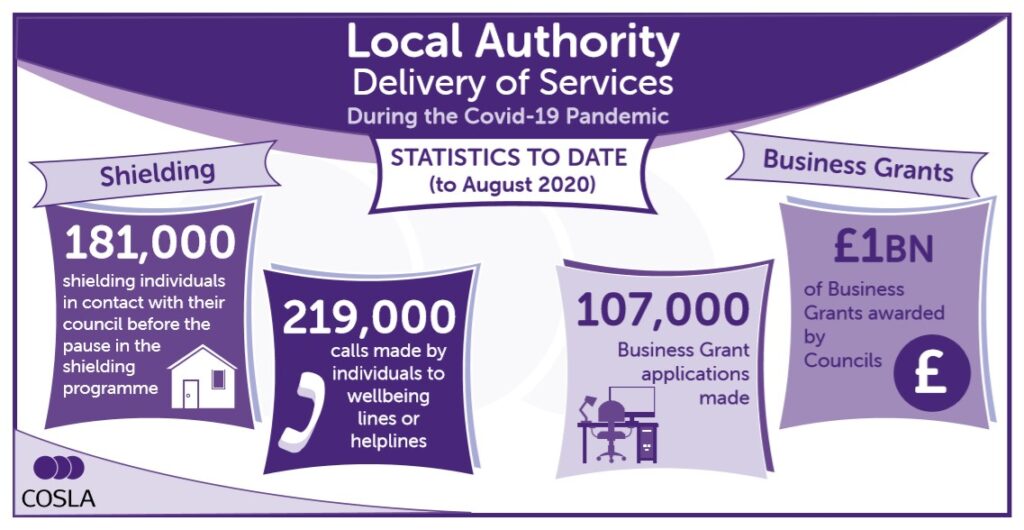
COSLA calling on more tax powers for councils in their document, Blueprint for Local Government. Councils have taken decisive action to protect and support communities, people, and businesses. Collectively they have provided shelter for homeless people, have kept essential services operational, delivered food packages and have been at the coal face of direct response during the pandemic.
The Local Government workforce is the largest in Scotland and has adapted to meet the needs of the pandemic, but COSLA are now pushing for more powers and funding to help meet the continued fallout. Key asks:
* Fair funding for Local Government.
* A Fiscal Framework for Local Government.
* Longer-term certainty in relation to budgets, allowing a focus on early intervention, prevention and transformation.
* Removal of a cap on Council Tax so that this is a truly local tax.
* More powers for discretionary taxation.
Read the full document here.

Shelter Scotland’s key asks ahead of the Scottish Government’s Programme for Government announcement on Sep 1, 2020. Includes Tackling Covid-19 rent arrears, Unsuitable Accommodation Orders, and an Affordable Housing Supply Programme. Full document here.

At 11am on Friday August 21, 2020, the Scottish Labour Party will livestream a keynote address from Richard Leonard MSP as he sets out his vision for a post-Covid Scotland.
We need fresh ideas for a fairer, greener Scotland. Inequalities, homelessness & low pay laid bare during the #pandemic. Now’s the time to plan for a better future.
Sign up for an invitation here: https://bit.ly/31ciuEt

In the wake of the Grenfell tragedy, building standards and accountability are more important than ever, and it is vital that all stakeholders are involved. I’m therefore dismayed to see that the Local Authority Building Standards Scotland (LABSS) has repeatedly failed to engage with the Scottish Parliament’s Local Government and Communities Committee work on the issue of ‘zero valued homes’.
As deputy convenor of the committee, I would like to see LABSS participate in our scrutiny of the ‘zero valued homes’ problem when flats, most often in modern tenements or conversations, receive a zero valuation in a home survey because of a concern that cladding or other external wall systems might not meet current regulatory standards on fire safety.
I have been contacted by constituents on this matter which continues to worry and frustrate many home owners, and we have been seeking expert views of Local Authority Building Standards Scotland ever since ‘zero valued homes’ emerged as a significant concern a year ago. We have written to LABSS chairperson Scott McKenzie about this – would be good to hear something before our next evidence session on September 4. Full letter here.

Much to learn about Coronavirus & recovery by listening to children. Thousands responded to the How Are You Doing survey carried out April-June & the Children’s Parliament has now published its report. Thanks to all those who helped children connect with the survey and make their voices hear. Report here.
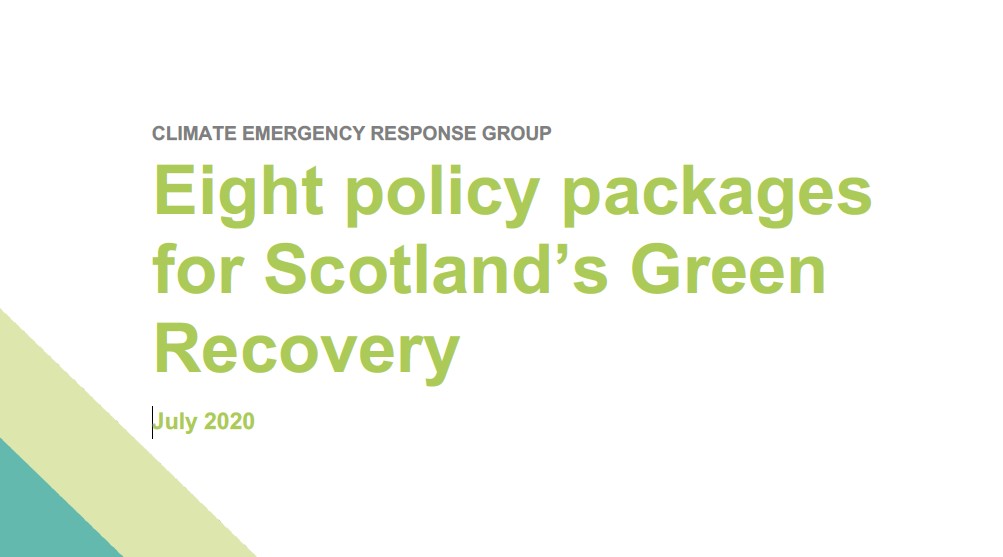
The Climate Emergency Response Group, working with WWF, has issued a report on steps for an economic recovery which is focussed on delivering practical, workable, solutions that could be implemented now, in order to move Scotland towards a net-zero economy, while recovering from the COVID-19 crisis. Read the full document here: CERG_Green-Recovery_Final-report_July2020
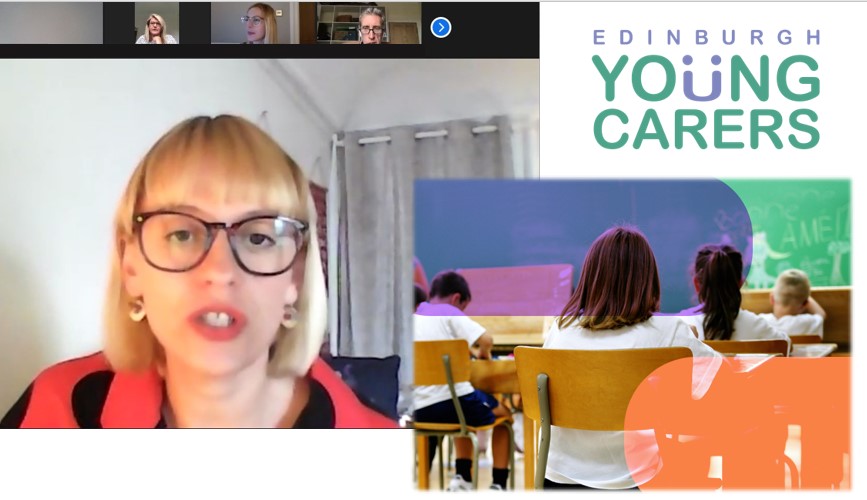
Excellent discussion with Edinburgh Young Carers, who offer a range of support for young carers, some as young as 5 years old. Lots of statistics and research identifying key concerns and worries of young carers, the impact on their education, the need for counselling and additional burdens placed on young shoulders during #lockdown.
PKAVS have also produced a helpful video with five young carers sharing their experiences – really important that young people know help is out there.
Research available here.
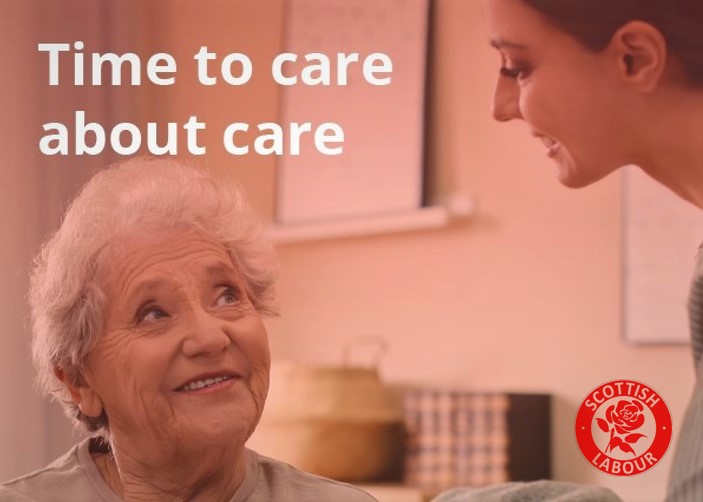
The pandemic has really driven home the value of care, the critical role of care workers and the need for a proper system that respects and delivers for those in care homes. Scottish Labour is committed to establishing a National Care Service that can address the recent failings witnessed during COVID19, and we need input and views from all interested parties, from stakeholders to caregivers.
You can read the full consultation document here to see what Scottish Labour has in mind for the campaign, and submit your views here: https://bit.ly/2BkAGBw
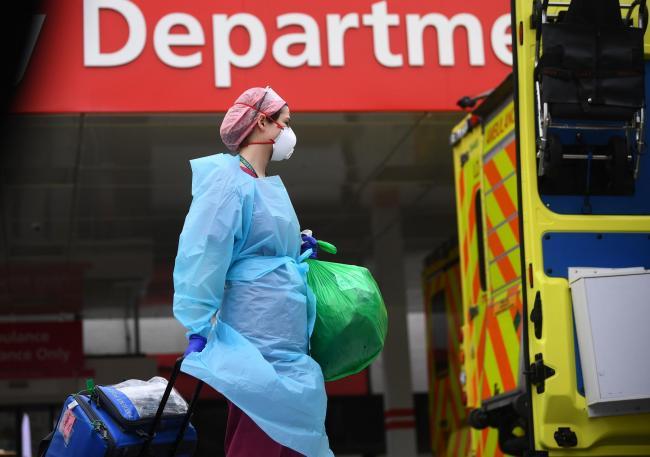
Richard Leonard MSP raised this very concern back in March and was assured all measures were in place to protect workers. This outbreak must surely act as a warning about the need for best practice with all firms where staff are work on site.
As Richard Leonard has said, “Workers must never be put in danger simply for doing their job. Employers need to up their game and fulfil their duty of care to keep staff safe.”
Scottish Labour Party remains committed to worker safety, especially during this very worrying period. See the Scottish Labour Leader’s letter and the Sitel response here.
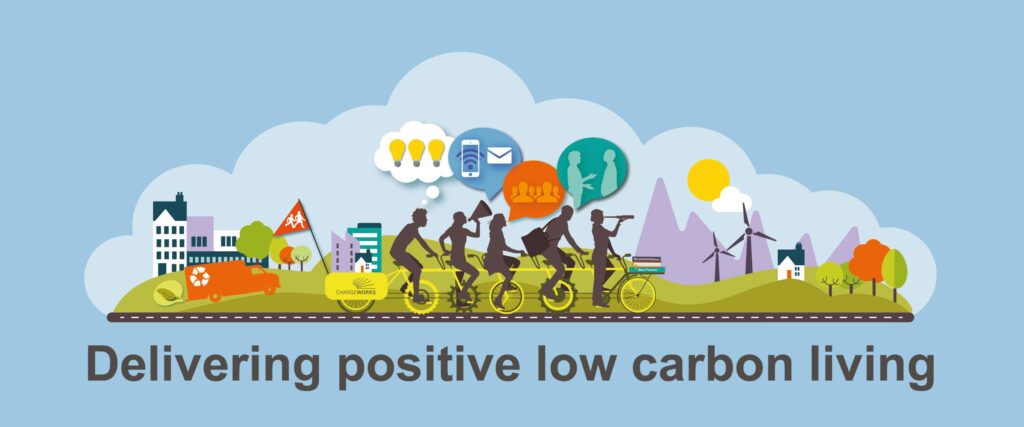
Recent polling shows the public wants to see government tackle the climate emergency with the same urgency as COVID-19, reflecting increasing concern at the risks posed by a warming world. The Climate Emergency Response Group (CERG) proposes 4 priority areas and 4strategies to help the economy recover and set Scotland on a course for net zero climate emissions. These should be implemented as part of the Scottish Government’s actions to build a fairer, greener Scotland and includes ideas such as retrofitting buildings as one of their key actions. Full report here.
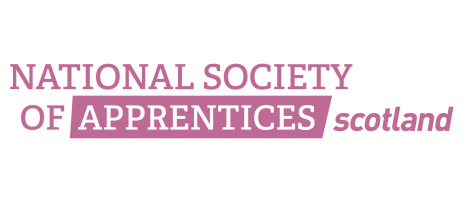
Young people and work the focus of much government discussion recently as we come out of #lockdown. The National Society of Apprentices Scotland has launched their report: Apprenticeships: are we working?’. The NSoA is hosted by NUS Scotland representing the views of apprentices from across all sectors and industries.
The NSoA recently sought the views of over 1000 apprentices from across the UK to find out about their experience of lockdown, how it affected their apprenticeship and the opportunities moving forward.
Findings showed:
• Two thirds (68%) of apprentices are still working in their normal jobs however, most are working from home.
• At the time of this survey a quarter of apprentices had been furloughed (25%). The current minimum wage for apprentices is £4.15 per hour, which means that some apprentices on furlough were earning just £3.31 an hour.
• The apprentices still physically at work came from a range of apprenticeships. Essential apprentice workers included care workers, manufacturing engineers, agricultural workers and administrators.
• Half of the apprentices surveyed said they are concerned about their mental wellbeing.
• 53% of apprentices reported that they only had access to a quiet place to work from at home for less than 2 hours a day.
• Over a fifth (21%) of apprentices told the NoSA that they don’t have the equipment they need to work or learn from home.
Full report here
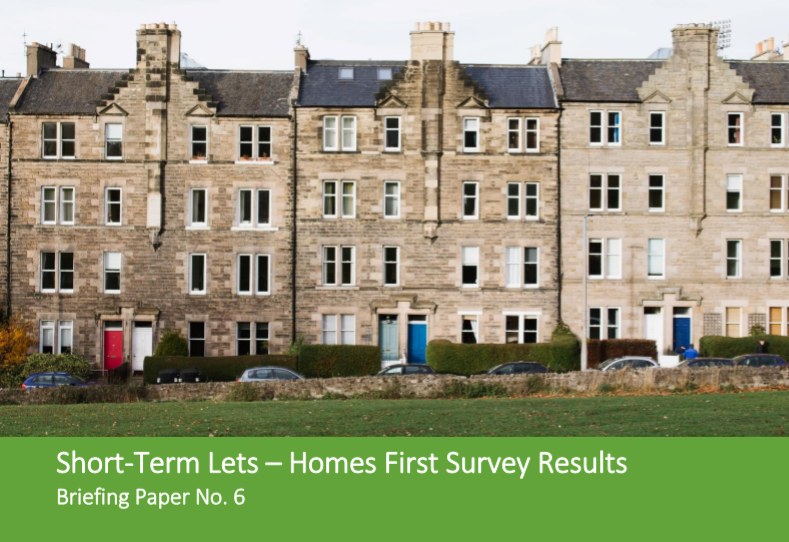
New Homes First Report survey results on short term lets by Andy Wightman reveals some interesting stats for Edinburgh:
* There are over 6500 commercial STLs in Edinburgh
* Of 477 STL flats identified only 1 has planning consent
* 45% of residents has two or more STLs operating in their stairwell
* And almost 3%million in local taxes being avoided.
Read the full report here.

We’re long overdue for some monuments to women’s remarkable efforts through the ages, but this woman, Elsie Inglis (1864-1917), is especially worthy. Funds are being raised for a Royal Mile monument to this remarkable WWI surgeon and pioneer of social & war medicine. Inglis also founded women volunteers of The Scottish Women’s Hospitals. The Dr Elsie Inglis-Scottish Women’s Hospitals Trust is the only official charity to specifically raise funds for the commemorative monument, and is seeking £250,000 to make it happen. Details on how to contribute to this legacy here.

Eligibility:
* You live in Scotland
* The conflict is connected to social distancing or self-isolation
* The conflict is not part of a pre-existing dispute
* All of the people in the conflict agree to participate in mediation.
More details: https://bit.ly/38jukOJ
Call: 0131 556 8118
Email: admin@scottishmediation.org.uk
#pandemic #stress #Isolation #distancing #covidconflict #community
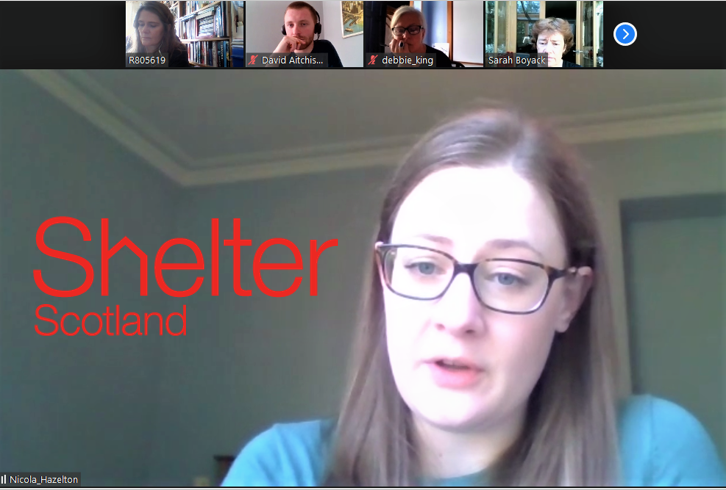
A really productive meeting with Shelter Scotland recently outlined a number of areas that still need attention if Scotland is to truly end homelessness after the pandemic. With tourism about to resume, and hotels and Bed and Breakfasts reverting to normal use, there remains concern about how and when the homeless population will be assured that enough accommodation exists to keep them safe and housed in the coming weeks.
Shelter Scotland has issued a 3 Point Plan on making this happen, and to ensure those who are homeless, or at risk of homelessness, are protected both during and after the pandemic. This is not the time to become complacent, and we must continue to push for positive, permanent change.

An excellent bill from Johann Lamont seeking a national strategy to help young people with disabilities transition to adulthood. Key provisions of the Disabled Children and Young People (Transitions) (Scotland) Bill:
* The Scottish Government to introduce a national transitions strategy to improve outcomes for children and young people with a disability in the transition to adulthood;
* The Scottish Government to appoint a Minister with special responsibility for transitions;
* Local authorities to introduce a transitions plan to ensure each child and young person with a disability receives appropriate care and support before, and during, the transition to adulthood
Johann Lamont says, “Since 2008 the percentage of Scottish disabled people in employment has fallen. We need to do much more to assist young disabled people during this important and challenging time in their lives.”
Read the full proposal here: https://bit.ly/2YfGjcU
#ScottishLabour #Scottishgovernment #community #youngpeople #enablescotland #capabilityscotland
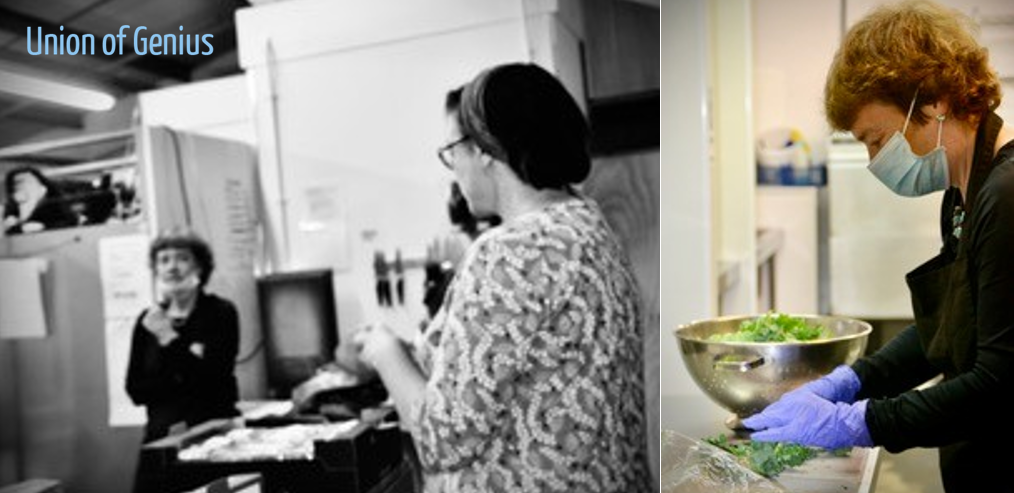
Met with the owner of Union of Genius this week, Edinburgh’s much-loved soup café. Like lots of local businesses, concerns around re-opening and ways to handle rent during #Covid19 were on the table for discussion. Businesses definitely needing support just now.
Lots more to come on how business fares as #lockdown restrictions are lifted.
#Edinburghbusiness #UnionofGenius #soup #community #cafes #greenEdinburgh #foodforgood
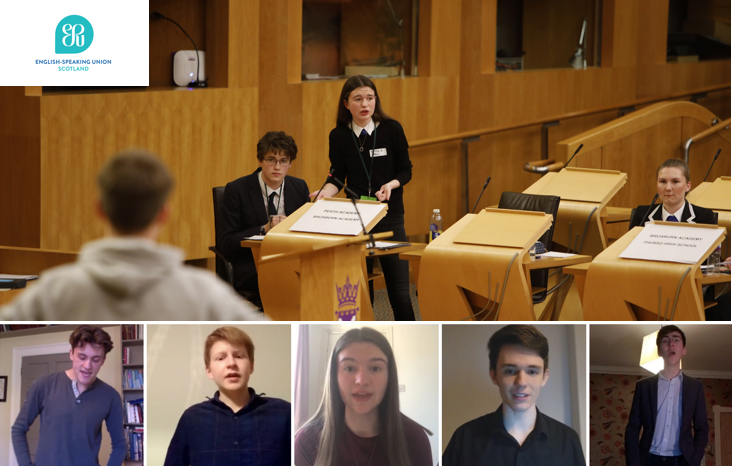
Happy to submit a parliamentary motion this week congratulating a group of young people from Lothians schools on making the Scottish National Debating Team. Well done to Lachlan White (George Watson’s College), Eoghan Connolly (Douglas Academy), Emma Bell (Broxburn Academy), Freddy Simonet-Lefevre (Craigmount High School) & Oscar Swire from (Stewart’s Melville College)
In addition, Emma is not only the first pupil at her school to make the team but is also only in S3, so best of luck to her and the team this coming year. And special thanks to the hard work of English-Speaking Union Scotland for bringing such a bright group of talented young people together. Read my parliamentary motion here.

The outgoing President of the Educational Institute of Scotland (EIS), the country’s largest teaching union, will today use his final speech in office to warn against a return to the damaging programme of austerity that has decimated public services over the past decade.
The EIS President, Bill Ramsay, will also highlight the immense scale of the challenge facing Scottish education in the COVID-19 era. Mr Ramsay will deliver his speech to a special online meeting of the EIS Council which has been convened following the enforced cancellation of the EIS Annual General Meeting (AGM) – the Institute’s sovereign decision making body – as a result of the COVID-19 crisis. Read the full speech here.
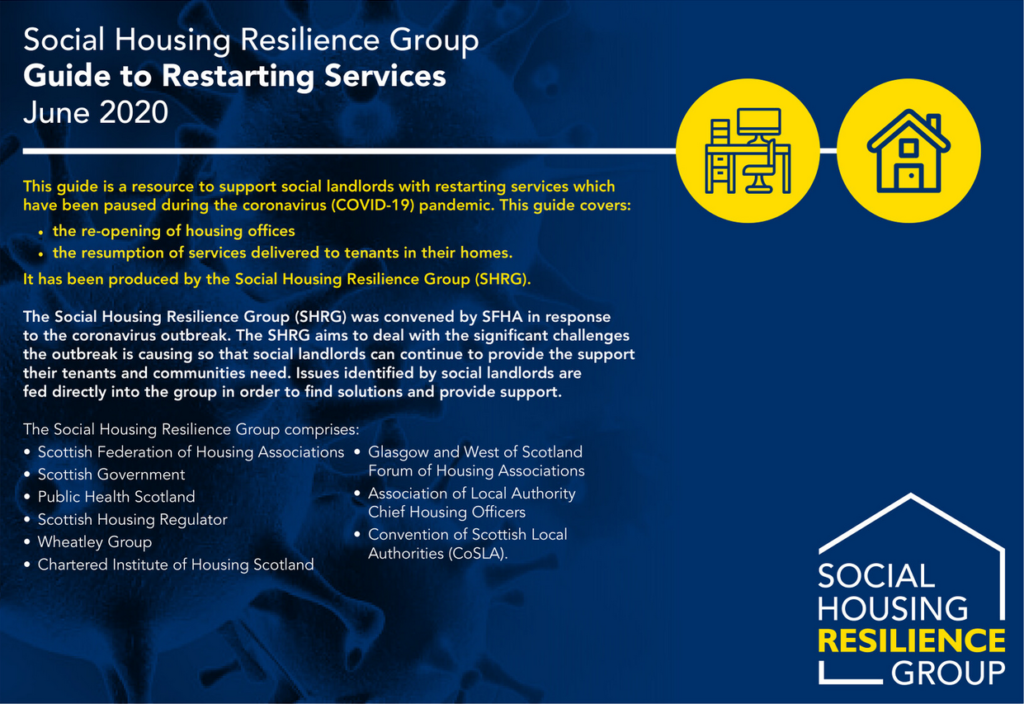
The Social Housing Resilience Group has created a guide to help social landlords restart services that have been paused due to COVID-19. The guide covers the re-opening of housing offices and the resumption of services delivered to tenants in their homes.
The document aims to summarise existing advice on the principles involved in re-starting services as part of the national recovery process.It aims to deal with the significant challenges the outbreak is causing so that social landlords can continue to provide the support their tenants and communities need. Read the document here:
The SHRG was convened by the Scottish Federation of Housing Associations – SFHA in response to the coronavirus outbreak, and comprises the The Scottish Government, NHS Health Scotland, Scottish Housing Regulator (SHR), Wheatley Group, Glasgow and West of Scotland Forum of Housing Associations, Chartered Institute of Housing Scotland and Association of Local Authority Chief Housing Officers.

Like many organisations, Waverley Care has had to rapidly change and develop the way they deliver their work. Among other changes, several of their services have moved to digital delivery, while Waverley Care Milestone has been repurposed as an interim care facility for homeless people recovering from coronavirus. You can read more about these developments here:

Lots of us know someone who has been affected by dementia at some point and around 90,000 Scots suffer from it. Over 60% of those in care homes have the condition and Alzheimer Scotland has seen a 30% rise in calls to their helpline during the pandemic.
Dementia, a terminal illness that affects the brain, is an umbrella term for over 100 different types of illnesses and disease symptoms, including memory loss and difficulties with daily tasks, language and problem-solving.
The charity is asking for support during Dementia Awareness Week and is asking people to print off and display their Forget-me-Not flowers or donate at: https://www.alzscot.org/support-us/donate
Call the 24-hour freephone dementia helpline on 0808 808 3000.
Download the Forget me Not here

Some good work from the Cooperative Party on ways to sustain bus travel for those living in areas without council-run or owned bus services. Download their campaign pack here for ideas on how to keep buses running in your area.

Dogs Trust Hope Project has been supporting homeless dog owners for more than 25 years through the veterinary and Welcoming Dogs schemes. The veterinary entitlement card scheme runs in over 100 towns and cities across the UK and provides free vet care for dogs belonging to homeless people. To run this vital scheme, they work with 346 homelessness organisations and 136 veterinary practices across the UK. The Welcoming Dogs scheme aims to keep people and pets together by working with hostels and housing providers to encourage them to accept dogs, increasing dog-friendly provision across the UK.
Since the UK went into lockdown, they have also seen an increase in requests for dog food supplies from homelessness services as well as homeless dog owners themselves who are struggling to purchase dog food for their dogs, through lack of funds.
To help with this we have adapted our Welcoming Dogs scheme during this time so that we can provide ongoing support and guidance to hotels and homelessness services on accepting and managing dogs. We have also updated our guidance on dog care for dog owners that are homeless. More information can be found on the Hope Project’s webpage: https://www.moretodogstrust.org.uk/hope-project-parent/hope-project-and-covid-19
Dogs Trust Freedom Project supports people fleeing domestic abuse by offering a free and confidential pet fostering service, and also raises awareness of how pets can often be used as a tool by perpetrators to abuse their partner/family member. As many refuges are unable to accept pets, Dogs Trust created the Freedom Project in 2004 to support people who need to flee their home but are unable to take their pets with them. The Freedom Project is continuing to run this vital service throughout the current Covid-19 period, with additional measures in place to protect our service users, volunteers, staff and dogs. More information about the Freedom Project can be found here: https://www.moretodogstrust.org.uk/freedom-project/freedom-project
Dogs-Trust-Supporting-homeless-dog-owners_Covid-19_DogsTrust

The National Union of Journalists’ UK-and Ireland-wide has launched a News Recovery Plan, to secure high quality journalism and help the industry sustain itself through Coronavirus. The union as issued a report outlining their path to recovery, along with future goals. Document here, and key points below:
• Establishing a government-funded Journalism Foundation – as recommended in the UK’s Cairncross Review– to invest in local journalism, innovative media projects, and vital areas of quality journalism which are no longer supported elsewhere.
• Conferring “asset of community value” status on local newspapers, ensuring that titles facing closure, or potential sale to owners who fund very little local content, are preserved for potential community ownership.
• Offering rate relief and other financial support for local social enterprises and journalistic co-operatives taking over titles from major commercial operators, and running them as not-for-profit enterprises.
• Persuading governments at all levels to introduce a windfall tax of 6% on “tech giant” companies, using means such as the Digital Services Tax, to help fund a News Recovery Plan, and continuing support for high-quality independent journalism.
• Ensuring that government advertising is strategically invested in innovative journalism and local and hyperlocal news initiatives, as well as in mainstream media.
• Considering a news voucher system, particularly for young citizens aged between 16 and 19, to encourage them to engage with the news sources available, and to make informed decisions about them. Such a programme could be combined with media literacy education in school, designed to prepare young people for their role as media consumers.

The Chartered Institute of Personnel and Development have issued some advice for employers on how to handle a phased return to work. The Job Retention Scheme remains important for most businesses, though, and has saved an estimated 374,000 jobs so far. The CIPD has warned that changes to JRS will be required to avoid permanent redundancies in the future, with a survey showing that Scottish employers back the CIPD’s calls to extend the Job Retention Scheme and to make it more flexible to allow short-time working. You can read the return-to-work guidance here and access their coronavirus hub here: https://www.cipd.co.uk/news-views/coronavirus

The Capital City Partnership is facilitating a competitive grants process for phase one of the programme in several local authorities including Edinburgh, East Lothian and Midlothian.The Intensive Family Support Service aims to target persistent worklessness and poverty evident throughout the Edinburgh and South East Scotland City Region Deal area.
They’ll provide income advice, and work with local authorities to support progression of families to consider pathways to work and education.
Information and eligibility document here.
https://esescrdifss.co.uk/ https://capitalcitypartnership.co.uk
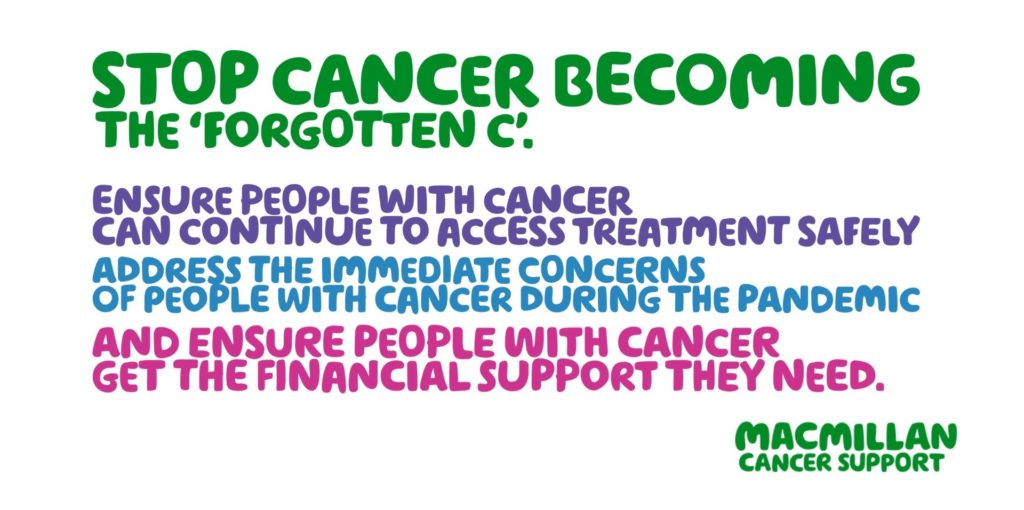
Macmillan campaigning to ensure people living with cancer can still receive the care they need. Many nurses have been redeployed to help fight Coronavirus, and the charity is rightly proud of their effort. However, with fundraising events cancelled or postponed as demand for services increases, and funding looks set to drop by almost 50%, it’s important that the Government remembers the other ‘C’. People living with cancer can access more information at Macmillan’s Covid centre here: https://www.macmillan.org.uk/coronavirus or see their information leaflet here.

Citizens Advice Scotland have issued a report on the impact of coronavirus on its services, highlighting searches and advice sought across Scotland. It provides a useful snapshot of people’s worries at the start of #Covid19, and last month they issued 78,000 pieces of advice across Scotland. As the pandemic takes hold these figures are likely to increase and reflect a wider range of problems for people.
If you are worried about bills, benefits, debts, housing, employment etc.call them on 0800 085 7145. See the report here for a full breakdown.

Carers Scotland has released new research, ‘Caring Behind Closed Doors: the forgotten families of the coronavirus outbreak’ www.carersuk.org/closeddoors looking at the impact of Covid19 on the lives of unpaid carers across the UK.
The findings are based on the responses of over 5000 current and former carers, with almost 900 in Scotland. Not surprisingly, they show the pandemic is placing additional stress on unpaid carers, who were already stretched to breaking point. It is now imperative that unpaid carers concerns are listened to, and that they are urgently provided with the support and recognition they need to enable them to continue providing care.
Crucially, many paid care workers are having to self-isolate or work without personal protective equipment (PPE), others have had little choice but to care full time for family or friends with complex health conditions.
The Scottish Government has enacted some measures such as providing PPE to carers, adapting Carer’s Allowance rules and providing £500,000 for carers centres and young carers services. There’s still a lot more to be done, though. Read the full report here and please share.

Feel-good stories are always appreciated during tough times, so it’s great to hear of this young track-star-in-the-making raising a whopping £500 for The Bethany Christian Trust to help end homelessness. Young Jasper (6) from Edinburgh completed a 5K run in his back garden as part of the drive to celebrate the 2.6 Challenge on what would have been the 40th London Marathon on April 26. Well done!
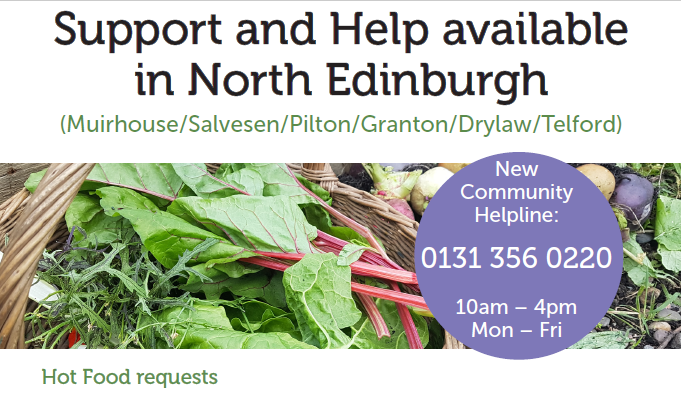
Positive moves from the North Edinburgh Covid-19 Foodshare group, offering information on a range of services: hot food, packed lunches, toiletries and details on health, council tax and business. More info here.

A new partnership will help thousands of Scots that signed up to the Scotland Cares campaign to get involved with local efforts to bolster town centres after Covid19. It will be delivered by Scotland’s Towns Partnership and Volunteer Scotland, with over 45,000 Scots signed up already. Details here of available funds for additional business support and the £50m Wellbeing Fund

Lovely story in The Guardian on the joys of allotment gardening in Edinburgh during the pandemic; vital for health and wellbeing during stressful times. Guidelines from Edinburgh Council and the Scottish Government on health and safety practices on allotments here.
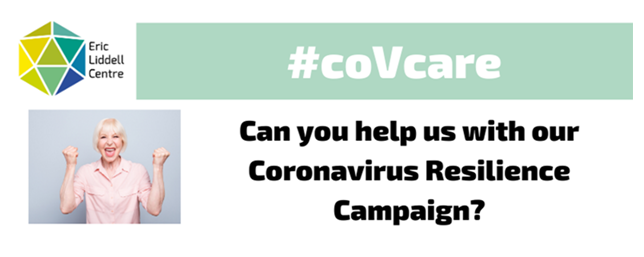
It’s wonderful to see communities pulling together during Covid19 and bringing help to those who need it most. The Eris Liddell centre in Edinburgh is now offering free soup and sandwich deliveries, five days a week, to people in Edinburgh. To donate £5, text COVCARE to 70970. To donate £10, text COVCARE to 70191. Or visit: http://easydonate.org/COVCARE More info on the work of the centre here.

April 6. Elaine Smith MSP was quite right to call for The Scottish Parliament to reconvene. Constituents have getting in touch with issues that need to be raised with the Ministers as soon as possible. Surely, with recent events and Covid19 updates happening on a rapid, daily basis, now is not the time for recess? Parliament must sit again to deal with these pressing issues immediately. See the letter here and the response from the Rt Hon Ken Macintosh MSP, Presiding Officer.

The Scottish Government has updated its advice on the use of PPE in various care settings and has issued further guidelines. Advice is fine but we really need these frontline staff to have access to appropriate PPE before they can make proper use of it. You can access the posters and advice here and here. Or go to: https://www.hps.scot.nhs.uk/a-to-z-of-topics/wuhan-novel-coronavirus/#guidelines

A quick reminder to constituents that you can arrange an appointment for a phone surgery with me or, if you prefer, a video chat. Email Sarah.boyack.MSP@Parliament or call during normal office hours on 07570 107005 and I’ll do what I can to help.
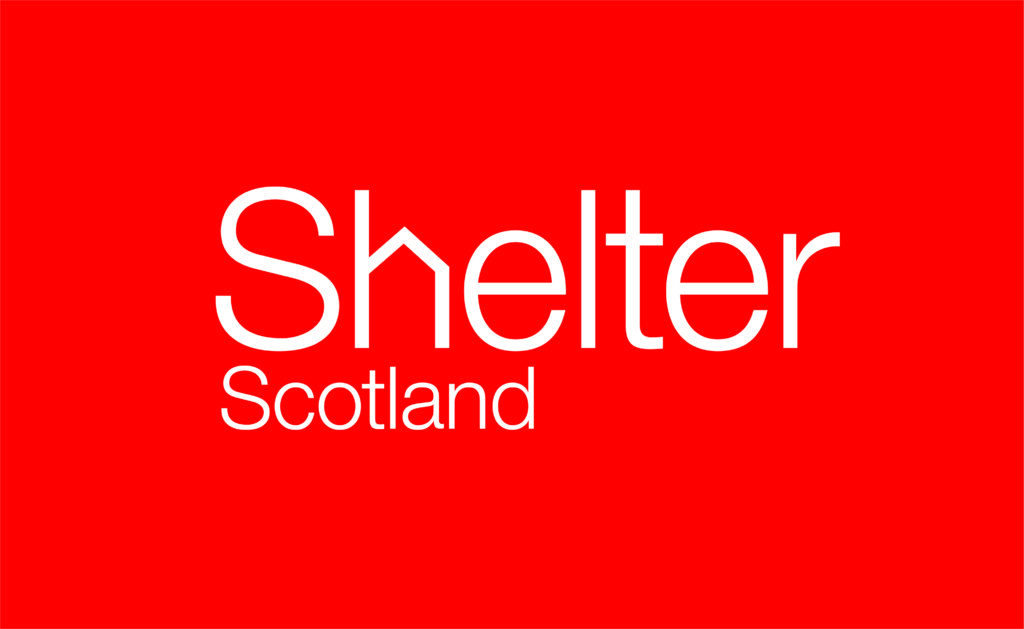
Shelter Scotland have updated their briefing on today’s Coronavirus Scotland legislation. Key changes to protect everyone includes: * extending protection from eviction to people whose case is currently in the court system or has already been heard by court * ban on future evictions for coronavirus debts where tenants are continuing to try and pay their rent either through LHA, furloughed wages or employment once restrictions lifted * calling for amendment to unsuitable temporary accommodation legislation * powers for local authorities to sequester holiday homes, if councils are unable to reach agreement locally as temporary accommodation. Full details here.
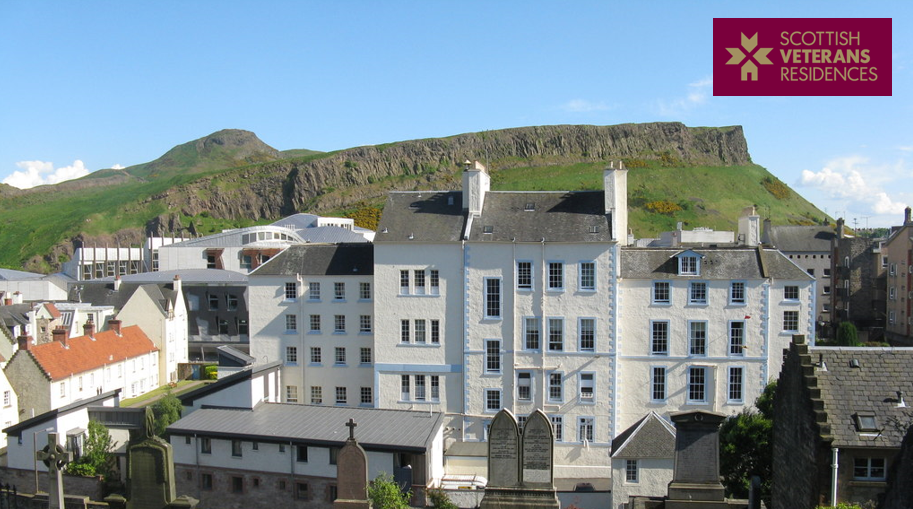
Scottish Veterans Residences are keen to remind veterans that they will offer their usual services with considerations around personal safety and protection during Covid19. They will continue to provide accommodation, catering and support for Veterans in need, and to take referrals for support for homeless Veterans through the routine referral pathways. They ask new service users, who may be at risk of Covid19, to isolate when first using their accommodation and for others to maintain 2 metre social distance in communal areas. More information here.

For parents and carers needing a little help entertaining kids (and themselves) during the pandemic, local communities have stepped up to provide a list of online resources including audio books, art resources, downloadable e-books, gym workouts, live concerts, online education courses and even webcams for updates on our furry and feathered friends at Edinburgh Zoo. Get the list here.
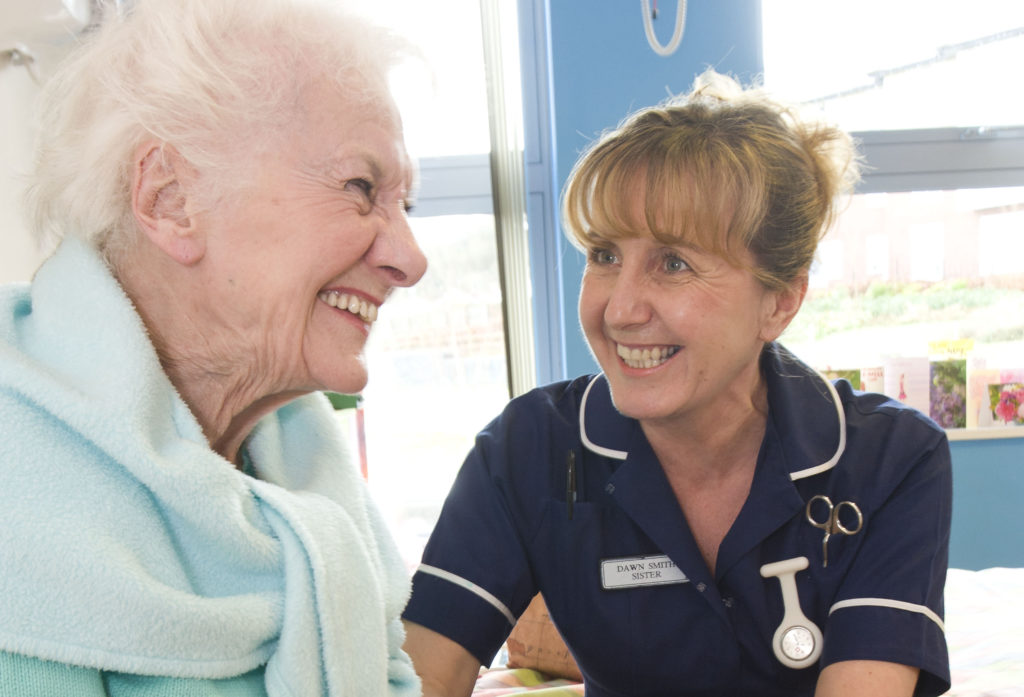
NHS Lothian looking for volunteers, especially ward helpers, to assist during the Coronavirus crisis. Use the fast track application form. For more details on the role see here. Contact Volunteer.Enquiries@nhslothian.scot.nhs.uk or go tohttps://www.nhslothian.scot/GetInvolved/Volunteering/Pages/COVID–19-Application-Process.asp

Age Concern Scotland are offering a friendly daily Good Day Call to people who would appreciate someone checking in on them each day.
Many older people live alone and may not have regular visitors. Some feel lonely from time to time and worry that no one will notice if they take ill or are not up and about in the morning. Many don’t want their family to worry about them.
Our Good Day Call service is a daily call, 365 days a year, to have a chat and check on the welfare of an older person. Over time, we hope to become good friends on the phone, chatting about the day and the world, and being there to give support and to arrange assistance if needed.
You can sign up to receive calls yourself or make a referral for someone else to receive the service by calling us on 01856 898 222. If you are referring someone else, we will also contact the older person to obtain some additional information, their preferences and gain consent to receive the service. You can download the information form here , fill in the referral form here and return to Age Scotland. By post: FAO: Good Day Calls, Age Scotland, Causewayside House, 160 Causewayside, Edinburgh, EH9 1PR
By email to: gdc@agescotlandorkney.org.uk
Age Scotland also offer their usual free helpline service on 0800 12 44 222 (Monday to Friday 9am – 5pm). You can call if you need help with anything, or are simply feeling lonely during lockdown.
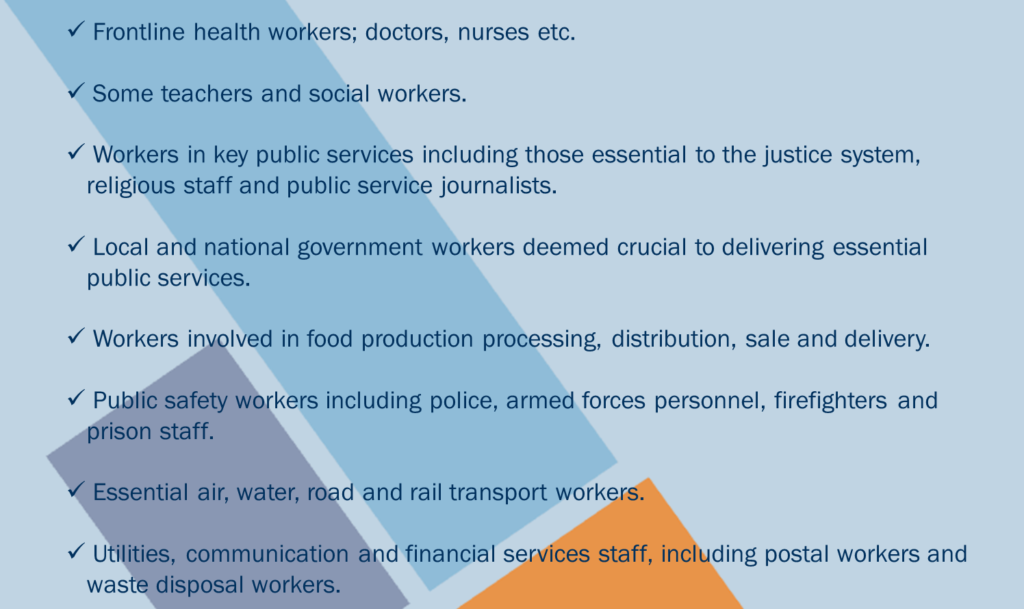
Constituents have been in touch, expressing confusion over who exactly is classed as a key worker. The Scottish Government has issued advice on this, and explained that definitions may vary between local authorities, depending on need. See this document for details. https://sarahboyack.com/wp-content/uploads/2020/03/FurtherGuidanceforKeyWorkers-24March2020.pdf
Pauline McNeill MSP absolutely right to raise the issue of homelessness in this pandemic, seeking more powers for local authorities to handle the crises on their doorsteps. She has written to the Scottish Government asking that councils be allowed to purchase accommodation for vulnerable groups including the homeless, victims of domestic abuse and asylum seekers. See the full letter to Housing Minister Kevin Stewart here.
RNIB have issued guidance for people who want to keep blind and partially sighted people up-to-date with Coronavirus advice. Also, social media guidelines are available here for anyone who regularly updates on their pages, designed to be accessible for everyone.
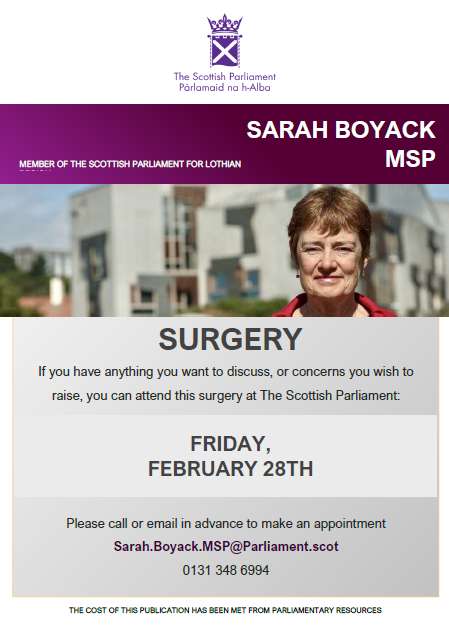
Disappointed with Minister Kevin Stewart’s response to my challenge on January 16, 2020, on overturning Edinburgh Council’s rejection of the Fountainbridge boatel planning application, saying there were “no material considerations” to justify planning refusal. Overwhelming community objections to this canal proposal – a key green site in Edinburgh – should not be ignored. https://www.edinburghnews.scotsman.com/news/politics/council/scottish-government-overturns-planning-appeal-union-canal-boatels-boroughmuir-vision-blocked-1355089
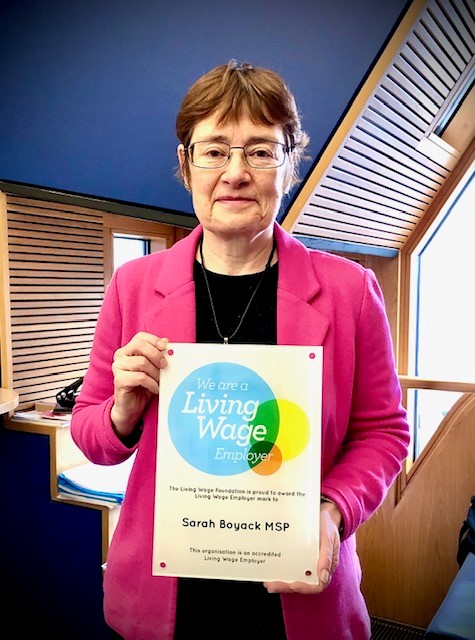


The Union of Shop, Distributive and Allied Workers outside Parliament today, campaigning to keep large Scottish shops closed on New Year’s Day. New Year is a special holiday in Scotland, but this is not always reflected in the experience of retail workers. The Usdaw survey shows that many Usdaw members feel they’re not getting the time off they need to enjoy New Year with their family and friends, and Usdaw are calling for a government consultation on the issue.
Sign the petition here: http://external.parliament.scot/gettinginvolv…/…/newyearsday


Sarah Latto, Shelter volunteer organiser 
Volunteers and supporters at Edinburgh Sleep Walk 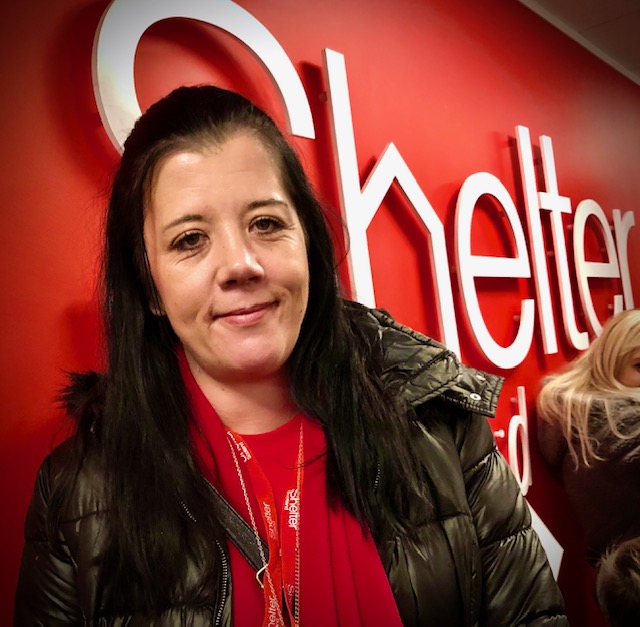
Lyndsey, peer organiser 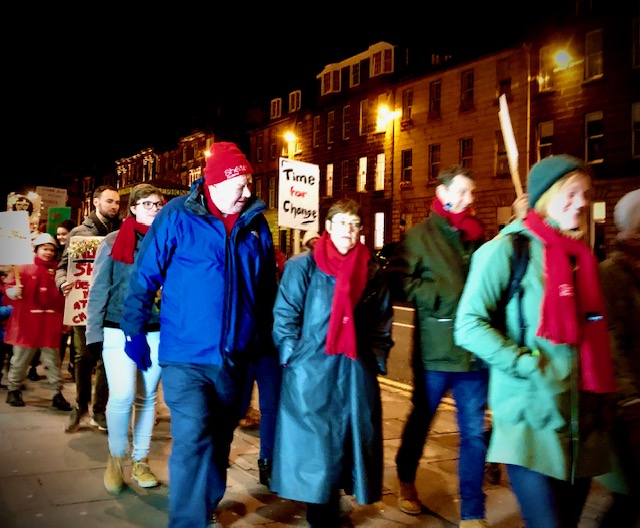
With Graeme Brown, Shelter Scotland director
It was great to join Shelter Scotland’s Edinburgh Sleep Walk. Peer organisers, those who have been helped by Shelter and volunteer their time in turn, organised the event, made the banners and led the walk through Edinburgh. A great reminder of the importance of this election and why we need to ensure that those in government are taking every step to end homelessness. Shelter Scotland’s Are You With Us? campaign is seeking the right to housing to be enshrined in law. Sign the petition here: https://scotland.shelter.org.uk/get_involved/campaigning/are_you_with_us
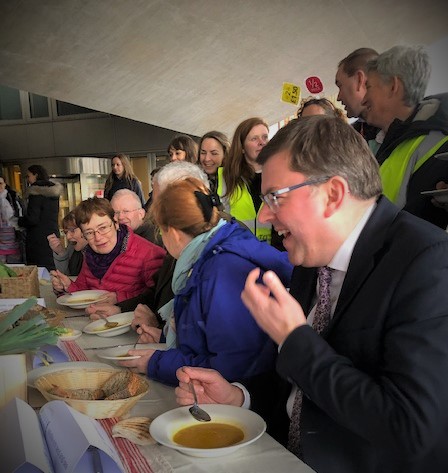
With Colin Smyth 
Laura Ferguson (Trussell Trust) and Sheila George (WWF)
With colleagues at the Good Food Table outside Parliament today. The Scottish Food Coalition is an alliance of organisations working for food justice, supporting the Good Food Nation Bill, which seeks the right of everyone to access good food, a food commission to oversee standards, and make sure public bodies incorporate the national food plan into their decision-making.

I joined Scottish Labour leader Richard Leonard and candidate Ian Murray in Edinburgh South. We had lots of positive responses from constituents and residents, and it really drives home that this general election is a chance to make some real changes in Scotland and the UK.
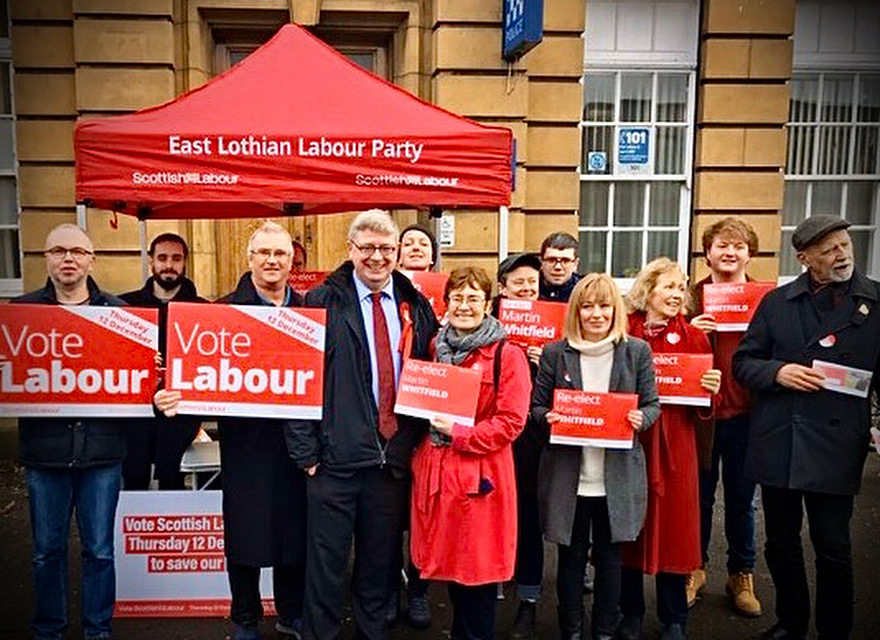
Out campaigning in Musselburgh with Martin Whitfield, and a strong show of support from the local branch, too. Just a few days left to drum up more support and votes as the general election approaches. A big thanks to those who came along.
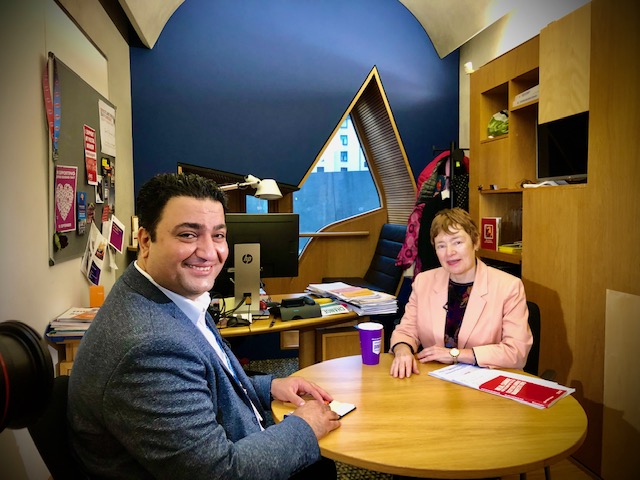
Great to be interviewed by Hemen Abdullah of Rudaw TV. Lots of interest and discussion on Brexit, Scottish independence and Labour’s position on both.
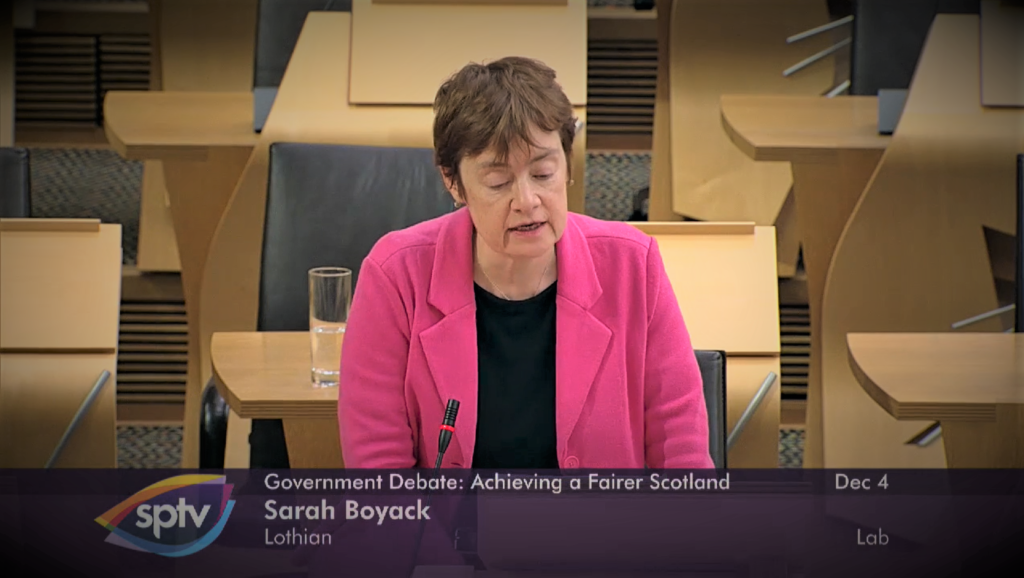
Commenting on the Fairer Scotland Report: far too many children in Scotland are living in poverty. Strikingly, the number who are living in families where one parent is in work is rising. That cannot be right. Steps such as committing to the rights contained in the UN Convention on the Rights of the Child are positive and, as outlined by the UN special rapporteur, make a real difference for children living in poverty. However, what is key is to ensure that those measures are not just good rhetoric but are upheld, implemented and acceptable.
United Against Islamophobia

United Against Islamophobia: Great to catch up with friends and familiar faces, and support my colleague Anas Sarwar’s United Against Islamophobia event in Parliament today. With Abdul Sami, Scottish administrative assistant from Mend, Linsay Taylor, board member from the Muslim Council of Scotland, and volunteer Adeola Akisanya, also project officer at Active Communities. For more information on their work and activities go to: https://www.mcscotland.org/ https://www.mend.org.uk/ https://www.facebook.com/anas.sarwar
UCU Industrial Action
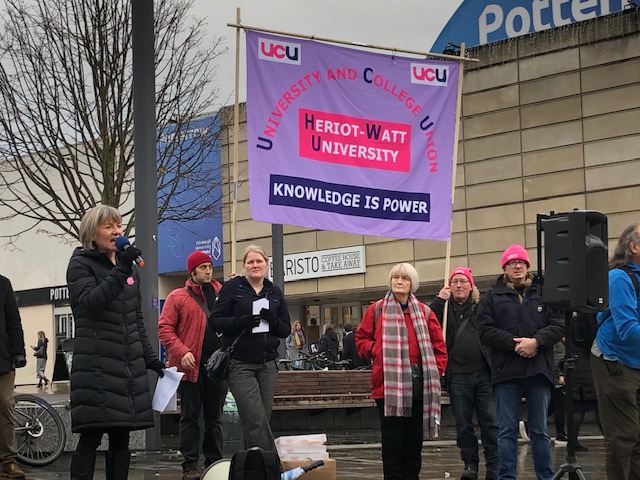
UCU speaker Mary Senior 
With Andy Wightman MSP 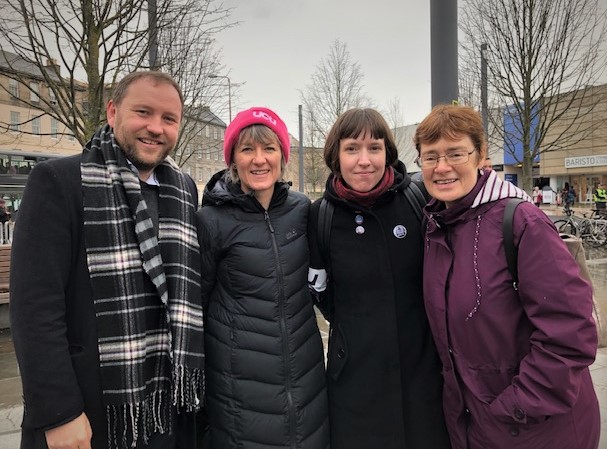
Ian Murray, Mary Senior, Lena Wåggener, 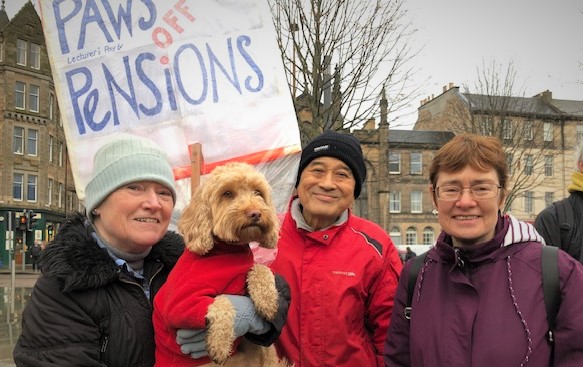
Anne Leaver, Peng Lee Yap and Pelaw the dog
Wet weather didn’t deter the supporters for the university lecturers’ UCU industrial action today who braved the elements to listen to some inspirational speakers and show solidarity. Strike action against casualisation of contracts, pay inequalities, pension contribution increases and unpaid overtime. Learn more here: https://www.ucu.org.uk/heaction
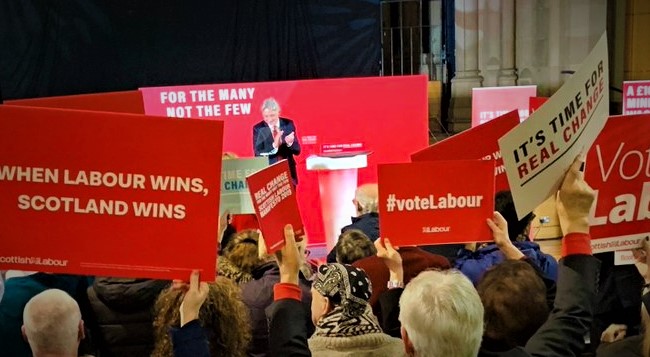
Labour Party manifesto launch, Glasgow, a radical and ambitious programme for government to transform Scotland. We will build a Green Industrial Revolution to tackle climate change, create jobs and rejuvenate communities. #OnYourSideYour copy here: https://scottishlabour.org.uk/wp-content/uploads/2019/11/Scottish-Labour-Manifesto-2019.pdf
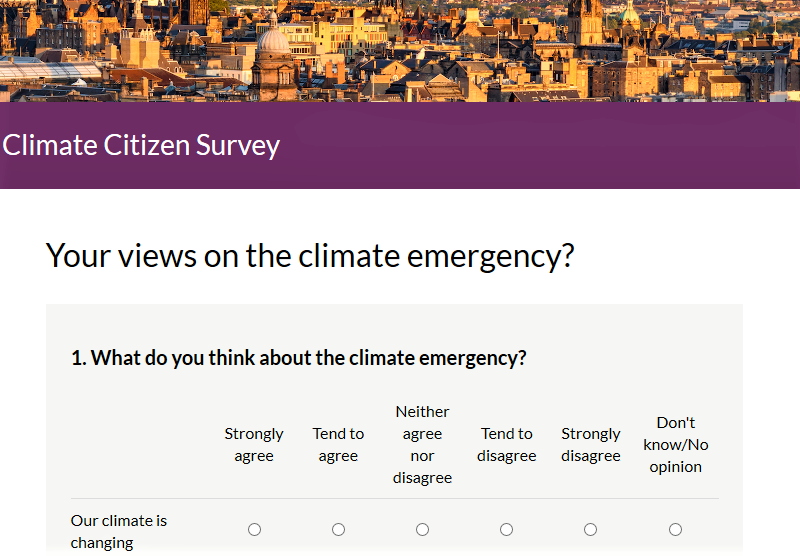
Local Government in action: Edinburgh City Council taking a proactive approach to addressing climate change. Edinburgh City Council formally declared a climate emergency in May and committed to becoming a carbon neutral city by 2030. Meeting the challenges of the climate emergency will require widespread support of national and local government, other public and voluntary organisations, the private sector and all of Edinburgh’s residents. The Council is looking for your views and opinions on how to make this happen, so please help by completing their survey. https://consultationhub.edinburgh.gov.uk/ce/edinburghtalksclimate/consultation/subpage.2019-11-05.0236643060/

Powerful words from The Guardian yesterday on the Labour manifesto: “Labour’s manifesto offers a vision of a country that can begin to put to rights the dilapidation and dysfunction that has been the deliberate policy of the past decade.”
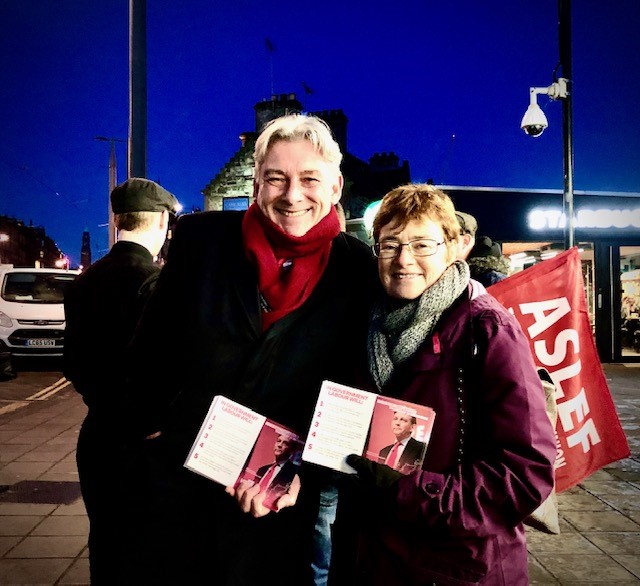
Well done to everyone who braved sub-zero temperatures this evening and joined Scottish Labour leader Richard Leonard outside Haymarket train station, Edinburgh. Vote Labour for a renationalised rail service and an end to high train travel costs @LabourRichard@scottishlabour
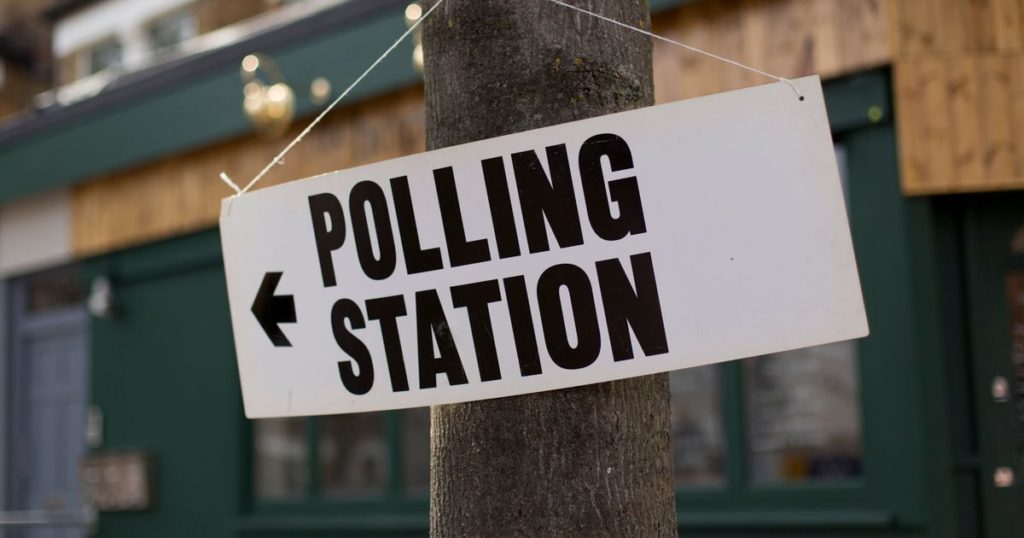
One week to register to vote. It’s important that as many people as possible make their voice heard in such an crucial election. Even if you’re sofa-surfing, homeless or haven’t got a permanent address, your voice counts. Register here gov.uk/register-to-vote…@Election2019_UK
Articles (ARCHIVE)
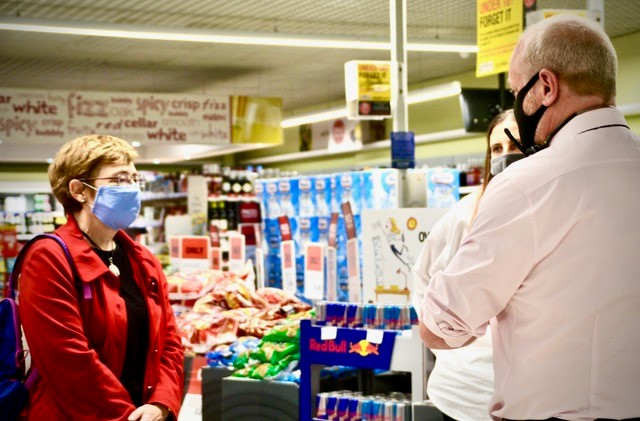
The Pandemic and the True Value of our Community Shops
I recently enjoyed a visit to Portobello Scotmid where I spent time speaking with the managers and staff about the role of the store during the recent coronavirus pandemic.
Scotmid in its original form began in Grove Street, Edinburgh, in 1859 where its 12 members formed a co-operative society to help combat increasing prices and poor food choices for many people in the city. Over 160 years later, the stores maintain this outlook and if my visit was anything to go by, locals value its presence more now than ever.
Facebook responses to my visit have shown an affection not just for the store but staff, too, with manager Colin Blair praising customers in return for their patience and support during the pandemic. He described stories of people coming to the store to shop for neighbours, and those who were isolating, and the ways in which the staff were able to help the wider community.
Particularly successful were food appeals to help those who had been hit hard by the lockdown or had suffered job losses, providing a lifeline for local families and the community – a feat made all the more extraordinary given how hard the retail sector has been hit during Coronavirus. With empty streets, less passing footfall, people isolating, social distancing and many people preferring the safety of shopping online, Scotmid has worked hard to stay open for those that depend on its services.
In true cooperative style, Portobello Scotmid worked to employ more staff during the pandemic, seeking recruits to help fill the gaps of staff who found themselves with care duties or had to isolate.
Lisa Stafford, Food Regional Business Manager at Scotmid, said, “As a cooperative, our core purpose is to support our communities and improve people’s everyday lives.
“Our teams have worked tirelessly over the past few months to do just that throughout a challenging time and its fantastic to see their work recognised at government level.”
For the community, this Scotmid store was a lifeline, a place of human warmth and support for those who had no-one, for whom the store is part of their daily routine, where they see familiar faces, exchange greetings and engage with staff as they shop for the food and products they need.
Through the pandemic, the stores have made this happen, meeting demand by working hard to keep supply lines operational and keep goods delivered on time.
The store’s role in lockdown has reminded us of the need for smaller stores, their role in society and the value of cooperation to help stave off the worst impact of Covid-19.
In all, my visit was an inspiring story for local communities. The clear commitment from staff towards customers serves as an example for the future. As we build back better we need to support community-based business models grounded in positive cooperative principles.
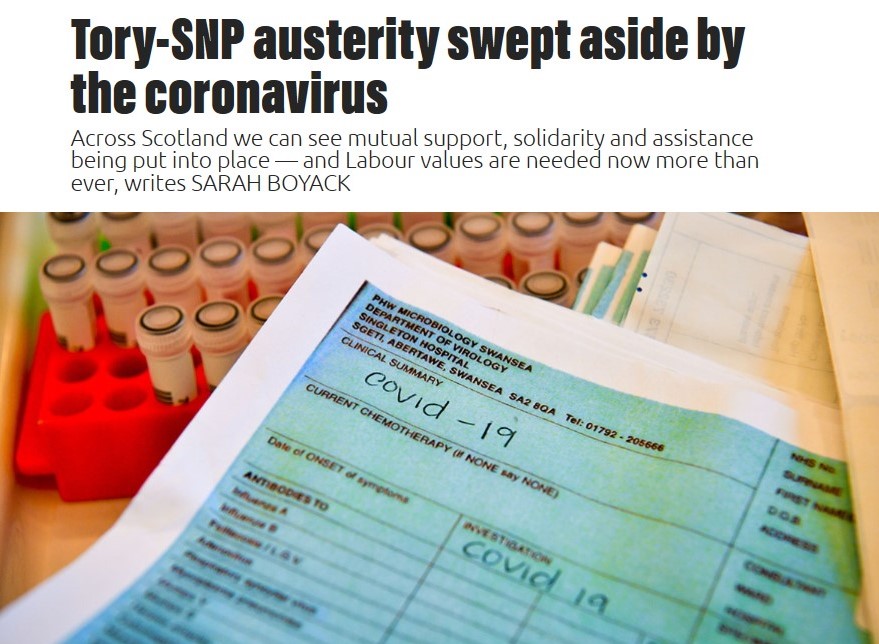
Will SNP keep millions from Scotland’s struggling councils? – Sarah Boyack
The Scottish Government is expected to have about £345 million in unclaimed business support grants that could go to local authorities and it also needs to pass on extra cash likely to come from the UK Government, says Sarah Boyack
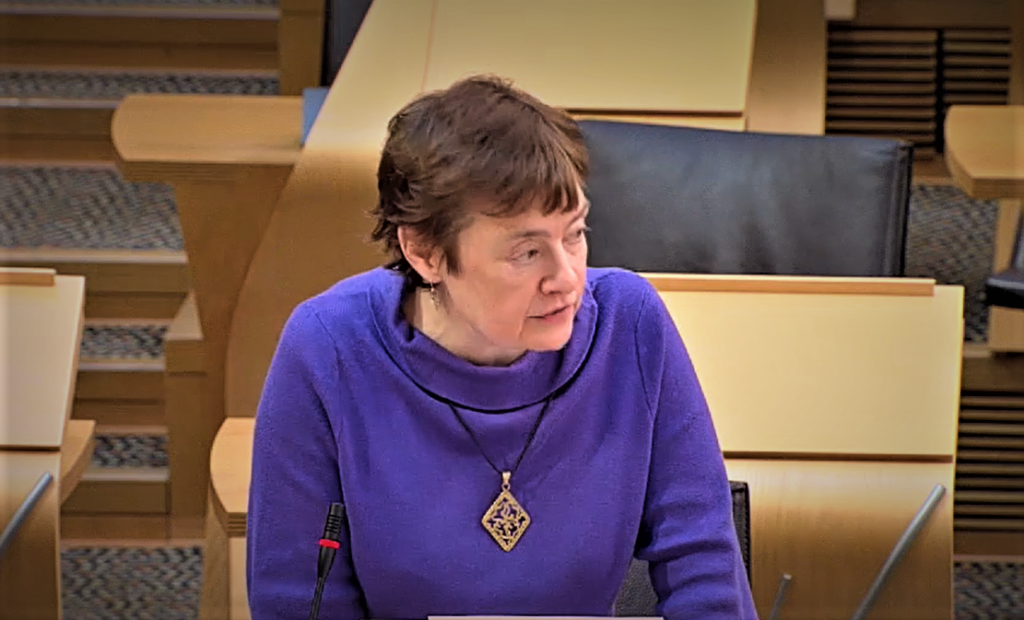
Faced with skyrocketing demand for services and constrained by a decade of underinvestment and neglect, Scottish local government has set an example of agility, delivery and efficiency that the Scottish and UK governments could learn vital lessons from. From delivering free meals for children to keeping essential services like refuse collection going despite tremendous challenges, councils have stepped up to the plate and delivered for the most vulnerable in our society.
However, thanking Scotland’s councils for their efforts will not ensure essential services are maintained nor prevent further savage cuts. Scotland’s councils are now entering uncharted financial waters that contain a fiscal whirlpool that threatens to obliterate council services, with COSLA estimating a £50million gap for essential services in this year’s Scottish budget.
Combine that with the Covid-related spend and loss in income which is around £500million and it’s not hard to see the pressure councils are under, and that’s before we add in the cost of getting schools up and running again.
But that funding gap has been expanding exponentially throughout the SNP’s 13 years in power at Holyrood. Since 2013/2014, the SNP Government has cut the local government revenue budget at over twice the rate that the Scottish Government’s own budget was cut in real terms.
To respond to the pandemic, councils have been forced to look to their reserves while they wait for support from both the UK and Scottish Governments. While last week’s prediction that council tax hikes of 50 per cent might be needed for councils to survive, a figure of 25-30% is probably more realistic. It would be unthinkable to pass on rises of that order given the unfairness of the council tax system and the loss in income many councils are facing, so we urgently need solutions to keep vital services going now and to enable our schools to restart safely next month.
This week, the Chancellor will put substantial spending plans before the House of Commons. Significant investment in Local Government in England is expected, precipitating millions in Barnett consequentials for Scotland. If the Scottish Government is serious about supporting our communities, they must pass on all consequentials directly to local government without delay. The reluctance to forward Barnett cash to councils early in the pandemic was unforgiveable and only exacerbated the challenges faced by councils.
This time, the SNP Finance Secretary Kate Forbes has the chance to do right by councils and the communities they serve: she must take that chance. We urgently need to see the same flexibility that the Scottish Government is asking for to apply to our local councils. The option of phasing increases in council tax over the years to come, not in a catastrophic one-off hike, and enabling councils to reprofile their debt and defer interest repayments to give them flexibility as we come out of the pandemic.
In the short term, there is much the Scottish Government can do to support our crisis-stricken councils. At the end of this week it is expected that there will be around £345million in unclaimed business support grants from the Scottish Government. This money needs to be given to Scotland’s councils now so that they can support local businesses and kickstart their local economies.
Across Scotland we’ve seen examples of councils standing up and delivering for their communities in this hour of unprecedented need. We face an uncertain economic future, with unemployment rising dramatically and wages stagnating. It is time for action and the SNP must stand up for the councils that have supported our communities through the pandemic.
WORKING FROM HOME: SARAH BOYACK The Lothian MSP describes her working from home experience
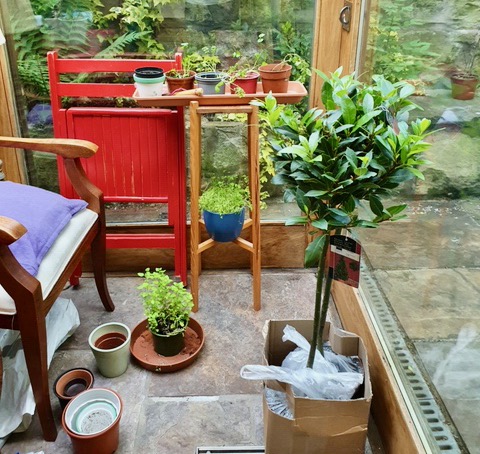
Describe the view and what it means to you.
I work in my mini conservatory/dining room. From here the view is peaceful with lots of trees, birds and occasionally a visiting squirrel. I’ve also got around to growing herbs indoors which has improved the quality of my cooking!
Tell me about a few things that you have in the work area that are important/essential to you working in there.
My laptop, laptop stand, wi-fi and an endless supply of de-caff coffee. But I’m still working off my dining room table so my office has taken over my living space. I think I’m one of the few MSPs who doesn’t have a bookcase behind them. In my house, my bookcases are spread throughout the house.
What’s your top tip for working from home?
Do not sit at the table all day. After eight weeks of homeworking I got a proper seat which has helped reduce back, shoulder and neck pain! But getting out for a walk or cycle is essential. My top tip is that you can do a phone call while going for a walk. I’ve also been treating myself by listening to my music collection while I work to help focus.
How do you avoid distractions and what is the biggest one?
Social media is the biggest distraction. But, on the other hand, it’s a substitute for our normal capacity to meet up and see friends and relatives, so it’s allowed.
What do you miss most when you are working from home rather than from the office?
Speaking to people, informal catch-ups, getting out to visit local groups, being able to work alongside people in the community and networking with people in the Parliament through Cross Party Groups.
The problems of working at home fall into context every time I receive a constituent’s email where someone needs urgent help. People who’ve been shielding, having difficulty getting access to food deliveries, emailing in about IVF, cancer, increasing cost of rents and the difficulty of keeping their business afloat, all of this concentrates the mind.
The interaction with colleagues is critical and, going forward, emails, using Teams, Skype and Zoom are really important to keep people connected and able to have their voice heard. We’ve all gone digital, which mostly works for us, but many of our constituents don’t have the same access to iPads and laptops so home schooling, and getting the help and support they need, is really hard for some people.
The inequalities that were there before are even deeper now. As we come through the pandemic the isolation and pressures will mean many will need help to get their lives back on track, and access to mental health support will be critical.
I feel privileged still being able to work, to be able to get to the Parliament without difficulty, to catch up with colleagues (socially distanced, of course), being able to ask questions in the Chamber and speak on the issues we are all focused on.
SCOTTISH GOVERNMENT MUST DELIVER FOR SCOTLAND’S “FRONTLINE” COUNCILS
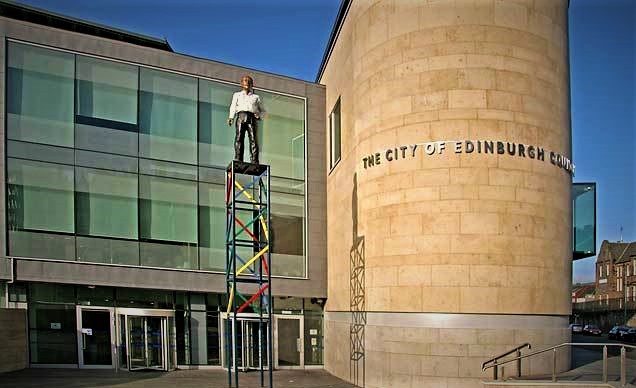
In this time of crisis our communities are rallying round and doing what they can to support people. Our councils are trying very hard to deliver services in our communities but face massive financial pressures. Underfunding councils will effectively mean cuts to communities which are already struggling in this crisis.
The coronavirus pandemic is putting huge stress on people’s lives – it is putting stress on the council services we need to protect our communities.
The Scottish Government must support councils by providing them with the entirety of the £310m additional funding for local government made available through Barnett consequentials.
Over the last few weeks our councils have reorganised services to stop the spread of the virus and to keep people safe. The pandemic has meant that demand for key services is skyrocketing and self-generated income plummeting. They have also been working hard with local community groups for example to ensure food is available to people who can’t leave their homes or who have been pushed into financial crisis.
Despite this, I am deeply disappointed that the Scottish Government has so far failed to commit to ensuring that Scotland’s hard-pressed councils get all the funds that they are entitled to.
Scotland’s already underfunded councils are under unprecedented strain due to the coronavirus pandemic, with demand for services increasing drastically and many of the traditional sources of self-generated income unavailable. They are also working hard to keep services such as recycling and waste management going while adapting them to keep staff safe.
Local government is in the front line of the fight against coronavirus and for this reason it is imperative that it receives all of the support that it is entitled to from the Scottish Government.
Failure to support our councils in this time of national crisis is a failure to support our communities in their time of need. It’s time for the Scottish Government do the right thing and deliver for the councils that deliver for all of us.
It is vital that our councils are financially stable and robust not just to get us through the pandemic, but to get our communities back on track, and eradicate the inequalities that the have been cruelly exposed in the past few weeks. That means doing things differently, continuing to support local communities, but looking at how the cooperative model of working together could transform our local economies and create the jobs people need.
INTERNATIONAL WORKERS’ MEMORIAL DAY
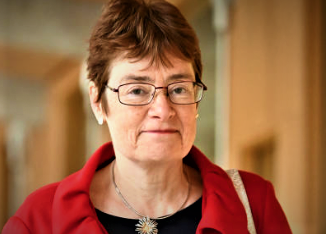
At 11am on Tuesday 28th April I will be joining the health unions UNISON, the Royal College of Nursing and the Royal College of Midwives in observing the one-minute silence for International Workers’ Memorial Day.
Between them, these three unions represent more than a million NHS and public service workers, including porters, refuse collectors and care staff. In the middle of the Covid-19 Pandemic, we must take some time to appreciate the invaluable work these workers are carrying out day by day and remember those who have lost their lives while keeping us safe.
We must ensure that all workers are safe, and I will continue to call on the Scottish and UK Governments to listen to voices on the ground and channel them into their response to this crisis. This includes listening to whether workers have access to the right PPE, not just looking at supply chains.
It means understanding the complications of social distancing in these roles, and the additional danger this places on workers. It’s why the right PPE should be available at all times to all staff who need it. And it’s why the testing, testing and testing advised by the World Health Organisation must be put in place now.
Too many workers in hazardous conditions are also on low pay. If it wasn’t already clear that this must change, Covid-19 has thrown this into sharp perspective. Emerging from this pandemic we must continue to demand decent pay and safe conditions for all workers.
REDISCOVERING OUR COMMUNITIES
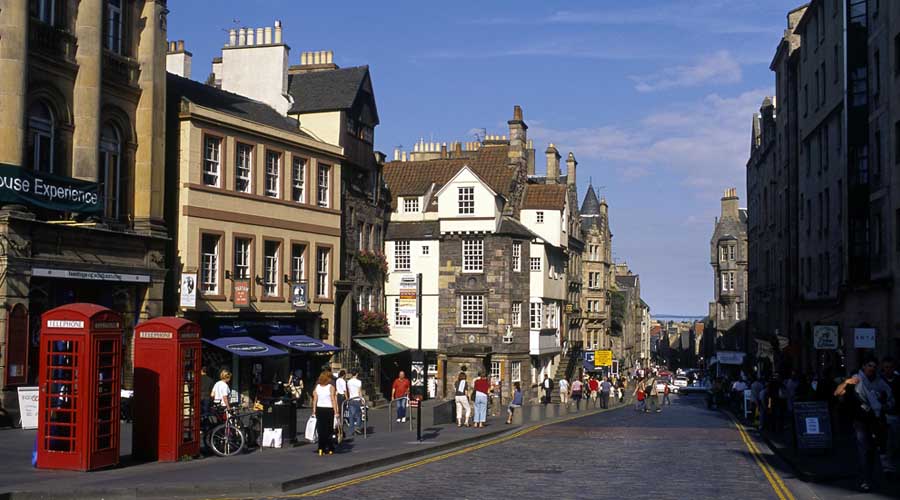
Businesses, small and large, have been under immense pressure since the start of the pandemic. However, despite, all odds, they have stepped up to the challenge and continued to keep communities going as people ditch their cars and take to their local streets by foot and bike for some daily exercise and a look around their environment.
For those not able to get out and about, online business has been a lifesaver. Just this week, Edinburghlockdowneconomy.com launched, advertising the large array of goods local businesses were able to offer, from crafts to gin-making, food deliveries to arts. We’re also now seeing our museums and art galleries bringing the opportunity of virtual visits, and everything from vegan delights to cocktail making kits finding their ways into people’s homes like never before, along with events such as livestreamed whisky tasting and music performances. There’s no doubt that Covid19 has forced these resourceful businesses to become ever more creative and responsive as they work to keep us fed, entertained and informed.
However, Covid19 has raised bigger post-lockdown possibilities, too. Already having lost so much to the accessibility of major supermarket chains, character and local flavour of our high street shops have been slowly eroded in favour of convenience. But convenience means something far different these days. Home deliveries are oversubscribed as supermarkets work to feed a massive at-home population, and many people are finding that they are unable to get their supermarket goods as quickly as they need. And it is our small shops and businesses that are stepping into the breach to deliver locally. Convenience is a local grocer able to deliver where a huge supermarket chain cannot; or a community online art class with friends that can keep the kids entertained for a few hours while you work, or even a local ironmongers able to deliver some gardening goods that same afternoon. If we’ve learned anything throughout all this, it’s that convenience is much closer to home than we imagined and there’s a value to local businesses.
Scotland’s farmers have vowed to keep the country fed with as much local produce as they could get to our doors and stores. Not only are we seeing an unintended – and welcome – reduction in carbon footprint, but this is a unique opportunity to rediscover the best Scotland has to offer its people. With fresh fish, local bread and pastries, seasonal vegetables and fruits, cheeses, meats and other culinary delights, all of these can find their way back into our high street shops and help reinvigorate our ailing town centres. With proper local government funding and support, our vibrant food, crafts and entertainment industries can find their feet – and customers – back in our high streets once more.
Discussions of lockdown exit strategies gives us all something to look forward to, so as we think about the day when we head back on to the streets again, why not leave the cars at home? Let’s take the time to visit our small, local businesses who are working hard to keep our spirits up as they keep themselves afloat, and say thanks to the farmers and food producers for keeping our food and goods coming during this pandemic.
Councils after Covid: why our local services need a fair deal now more than ever Scottishlabour.org.uk
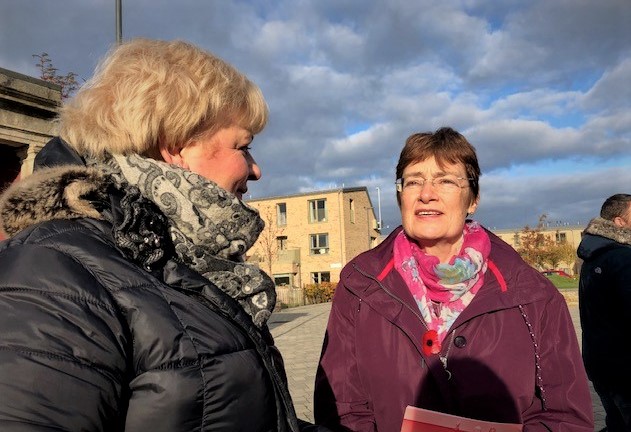
In the Parliament, Scottish Labour has been focusing on the necessity of rolling out widespread testing and PPE, not just to our vital NHS staff but to all other key workers where it’s appropriate, too.
It’s difficult to believe as it now feels like a lifetime ago, but this time last month we were debating the Scottish Government’s budget proposals. A decade of austerity and huge pressures on providing social care, rolling out new childcare services and meeting the changing needs of our communities. But in the last fortnight the Coronavirus pandemic has delivered an unprecedented challenge, requiring our councils to respond on the ground and reshape all their services without the certainty of knowing which bills the Scottish Government will pick up.
In an online meeting with Labour leaders across Scotland, their experiences and the pressure they are all under was clear. The scale of the challenge includes the impact of staff having to self-isolate, while services are reorganised in ways that would have been unimaginable a month ago.
Other obstacles include having to provide new services to help find safe care support to enable people who would otherwise still be stuck in hospital, and to house and support homeless people. These challenges were previously in the ‘too difficult’ category, but have now had to be addressed urgently.
The pressure on front line local authority staff is tremendous, whether it is managing and shifting resources to make large-scale changes happen fast to support people in our communities, and to work with the third sector to make sure people get access to food and the support they need locally.
Local authority Trade Unions have rightly flagged the need for consistent support for staff such as access to testing and PPE. This is something Scottish Labour has been demanding for all social work and care staff since the start of the pandemic, along with action to ensure that the safety of all local authority staff is delivered, such as social distancing measures at work.
It is vital that the Scottish Government commits to underwrite the additional costs that local authorities incur to keep our communities safe and resilient, and so that they come through this crisis able to adjust and help us transition to the recovery we will need in the coming months.
We all owe it to those lost to build a better society, The Sunday Post, April 12, 2020
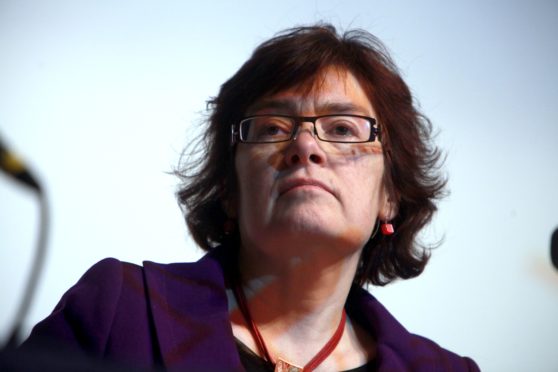
In these uncertain times, when the events of each day seem stranger than the last, those keen to predict our post-Covid world can seem full of certainty. We’ll all work from home, apparently; climate change will ease; we’ll drive less and shop local; and we’ll even appreciate our neighbours, united in a new-found community. What’s not to like?
The future feels a far-off place but our priorities, the things that feel are essential in our lives, have been transformed in a few short weeks. However, while imagining a better tomorrow might help us through today, we must not forget the challenges that many people were facing before the pandemic.
Only two weeks ago, their problems deserved our full attention and they still do: women suffering or at risk of domestic violence; young people desperately awaiting a mental health assessment; low-paid, contract-free workers seeking security, families depending on food banks, the list goes on.
This pandemic must not be permitted to be used as an excuse to take our eye off the ball or see us retreating from hard-won social progress.
We cannot allow further funding cuts to public services, to let rogue employers to continue to pay poor wages, or not ensure staff are safe at work. And, crucially, we must not normalise the massive scale of the voluntary, unpaid work of those unsung heroes who have stepped up to help.
As a modern society we are supposed to fund the work they do with a well-functioning health and social care service – not hope we have enough volunteers when a storm comes.
It is heartening to imagine that we are seeing the emergence of a new mood of equality and neighbourly support, but let us not lose sight of what is happening in the here and now.
My responsibility as an MSP and Scottish Labour’s job are the same: to help those Scots most in need, before and after Covid-19, and continue to remind the Scottish Government of its responsibilities to society as a whole. We must lead the way as new social and political boundary lines are drawn because how we reshape our priorities now offers a rare chance to create a fairer, more inclusive Scotland.
In this terrible crisis, we owe it to those who we are losing to build a better society. We must not let down future generations.
Let’s seize the chance to fix the student housing sector The Herald, March 27, 2020

The word ‘unprecedented’ is being used a lot these days, as we alter the way we live and encounter different social behaviours. New policies are being formed and laws passed to deal with the current pandemic, many of which are bringing welcome relief for people. One piece of legislation is the restrictions on evictions, allowing people to remain safe in their homes, even if they have lost their income. It is a law that encourages landlords to behave as responsibly as possible in these challenging times. Tenants are protected – unless you are a student, it seems.
I recently gained cross party support for a Parliamentary motion seeking stricter regulation of purpose-built student accommodations (PBSAs). PBSA landlords with buildings over 30 beds are exempt from the Private Housing (Tenancies) Scotland Act 2016, leaving students with fewer rights and protections than normal domestic tenants. To add insult to injury, the average PBSA rent in Scotland is around 2/3rds of the maximum amount of support available to students in higher education and exceeds the maximum amount available to students in further education.
As Covid 19 takes hold and universities close, many students are having to leave their accommodation and return home while it is possible. However, a number of my constituents have reported that PBSAs are refusing to let students out of their contracts and denying rent refunds on empty accommodation. For students who are self-supporting and have lost their jobs, it is a double blow. The National Union of Students reported that university halls remain inflexible on tenant contracts, and other students will be forced to pay up to £650 per month until the end of the academic year. With similar accounts coming from Glasgow, Edinburgh and other major cities, the issue was finally raised in Parliament yesterday by Patrick Harvie MSP, with the Government agreeing to look at NUS proposals to deal with the matter.
However, it really illustrates a deeper challenge with the rapid growth of PBSAs, displaying an unpleasant, exploitative side of the student rent business at a time when a more compassionate and adaptable approach is needed. Furthermore, it graphically illustrates the absence of pastoral care available to students as they continue to pay high fees on empty properties – large scale, corporate enterprises that show a worrying inability to adjust to individual circumstances and the needs of our students.
I have pushed for a Scottish Parliament review on the fast expansion of this sector, and the impact it has had on students and communities. Liam McCabe from NUS Scotland said, “It is our hope that together we can begin to shine a light on the practices of the companies building PBSA, and ensure that those operating in this sector are operating fairly, providing affordable, quality options to students, and that they are prioritising the wellbeing of their tenants and the communities they live within.”
Yesterday, Unite finally relented and agreed to let students out of their contracts early, and we can only hope that other PBSAs follow suit. However, many have not. When life resumes and universities re-open, we must ensure measures have been enacted to bring excessive student rents under control and that PBSA landlords demonstrate a duty of care towards students dealing with extraordinary pressures. These are unprecedented times but we must use them as an opportunity to create a social legacy that is not focused on profit and the exploitation of others, but on a more compassionate, fairer society.
How the Scottish Government turns its back on young people at their most vulnerable The Scotsman, March 12, 2020
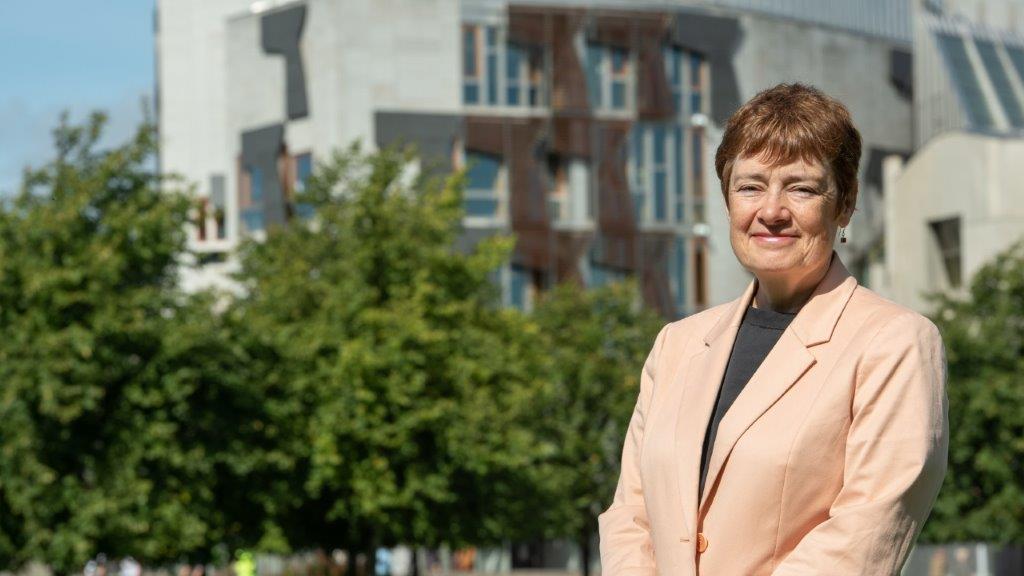
But one group is too often overlooked as we address these pressing issues of the day. Last week Childline reported a sharp increase in the number of young people contacting them about mental health issues, with counselling sessions increasing in Scotland, up by 90 per cent from three years ago. NSPCC Scotland stated that children described self-harming, having suicidal feelings, and cited worries about mental health, family relationships and problems at school and college. Simply put, many young people are struggling and they are not getting the support they need.
It’s shocking that over 5,000 children across Scotland waited more than 18 weeks to be seen by Child and Adolescent Mental Health Services (CAMHS) in 2019. This figure is bad enough but the Lothians has the worst record in Scotland. Between October and December, an appalling 51.6 per cent of young people waiting for CAMHS had been waiting for more than 18 weeks in the Lothians, far ahead of Tayside in second place at 42.6 per cent. A troubling 557 children had waited over a year.
These indefensible statistics display a failure to fund this vital resource which has, sadly, become a crisis service, only able to respond to the most serious and urgent of mental health cases. When our young people are at their most vulnerable, the Scottish Government turns its back on them by failing to provide the services they need.
We must grasp the nettle and acknowledge the implications of insufficient mental health funding, which fails year-on-year to match increased demand. These young people are the future of the country, and we must provide them with the care they need to help equip them for the next steps in their lives. They deserve nothing less.
I had the privilege of meeting Edinburgh apprentices last week and saw a tremendous range of opportunities in two very different examples of the world of work. A transport group and investment firm both provide fantastic opportunities for young people, harnessing their motivation, talent, skills and knowledge. These ambitious apprentices came from a broad range of backgrounds. But some had overcome personal adversity, bringing a unique perspective to their work and demonstrating that this was not a barrier to success. On the contrary, their resilience was seen as an indicator of their determination and was backed by a corporate commitment to help them succeed.
The Scottish Government has promised an additional £28m for mental health and CAMHS for 2020-21, rising from £61m to £89m, but it’s critical that this resource is targeted to eliminate the unacceptable times young people have to wait to get the support they need. In Lothian, the CAMHS backlog is unacceptable. We must ensure that funding is allocated more fairly and according to need, and ensure we continue to hold the Government to account for its failings.
In the meantime, we can also support and encourage our young people. We must remind them they are valued, and that having experienced a mental health challenge does not mean the end of the road. Instead, with the right support, it can become a constructive foundation upon which to build their future, make their way in life and find their route to success. But that support must be when they need it, not a wait that puts their life on hold.
Why Boatels on Edinburgh’s Union Canal are a Mistake, The Scotsman, Jan 17, 2020
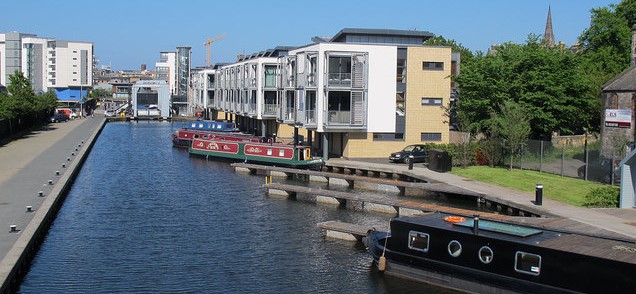
The recent Scottish Government decision to overturn Edinburgh City Council’s rejection of floating hotels, or boatels, has caused quite a stir and, rightly, raised the hackles of a growing number of community groups.
The plans for five boats to be moored on the Union Canal outside Boroughmuir High School were roundly rejected by city councillors last year, who had anticipated another vision for the area, one that included full community participation and regular use of the waterway by school pupils. The decision now means that the school’s access to the canal side will be blocked.
It must have been a crushing blow to the council, already reeling from criticism over the Christmas events planning fiasco. Despite over 300 objections lodged regarding the boatels proposal, the Scottish Government stands by its decision. The appeals decision notice gave reasons for granting permission for the boatels to be moored at Fountainbridge: they will be in an urban area; good city centre access; opportunities for economic development. But it is not yet clear just how much value boatels will add to Fountainbridge or Edinburgh at large. As tourism lets, boatel occupiers won’t contribute towards the city’s hard-pressed services until the tourist levy is in place, and don’t experience the scrutiny afforded to residential lets.
Apparently, the boatel decision meets the Scottish Government’s plans for the development of our canals but rides roughshod over local considerations, placing commerce over community, economics over environment. Clearly there is a disconnect between the government’s broader plans to enhance and develop tourism that takes focus away from our crowded tourist centres, and the need to manage residential expectations. A cynic may say that we are not learning to manage tourism more effectively, but taking existing poor strategies and simply pushing them onto the waterways.
As hotels spring up all over the city, community groups work tirelessly to preserve what is left of local charm. Fountainbridge, the scene of this particular controversy, has already seen several efforts by residents to reinstate the character of the community. A Fountain for Fountainbridge is one such endeavour that seeks to incorporate a community-driven heritage idea into the council’s development plans for the area. Recognising the value to the local community, it is fully supported by the Fountainbridge Canalside Initiative (FCI), one of the key groups opposing the boatels, and an indication of the strength of feeling residents have for their city.
As protest groups become more vocal in their objections to the Disneyfication of Edinburgh, FCIs objections make for some sober reflection. In addition to school access, anti-social behaviour, noise, drinking and smoking of boatel occupants was considered a potential source of disturbance to residents. A problem for the police, said the Government. Perplexingly, while the Government appears to believe that the types of boatel residents can be controlled under the existing plans, their behaviour cannot.
Essentially, little distinction is being made between regulations that govern the urban built environment and the fragile biodiversity of the canal, one that residents would respect and value as part of their home. Can the same be said of boatel short-term occupants? And with this precedent set, how much power does the council have to deter future bottlenecking of our waterways?
Party boats are not the answer to Edinburgh’s congested tourism. The canal environment is a privilege to enjoy, not a commodity to be ruthlessly exploited. As Ishbel McFarlane of the FCI bluntly stated, “Public spaces should be allowed to be enjoyed for their own merits without there always having to be recourse to commercial gain.”
If we have learned anything these past few months, it’s that tourism must be carefully conducted and skilfully executed, and appropriate planning is a vital part of that. If we continue to sell our city – and its surroundings – to the highest bidders, then we’re simply laying the groundwork for a fresh raft of tourism controversies rather than welcoming the benefits visitors bring to our fantastic city.
Sarah Boyack MSP – glad to be back at Holyrood The Edinburgh Reporter, Jan 6, 2020
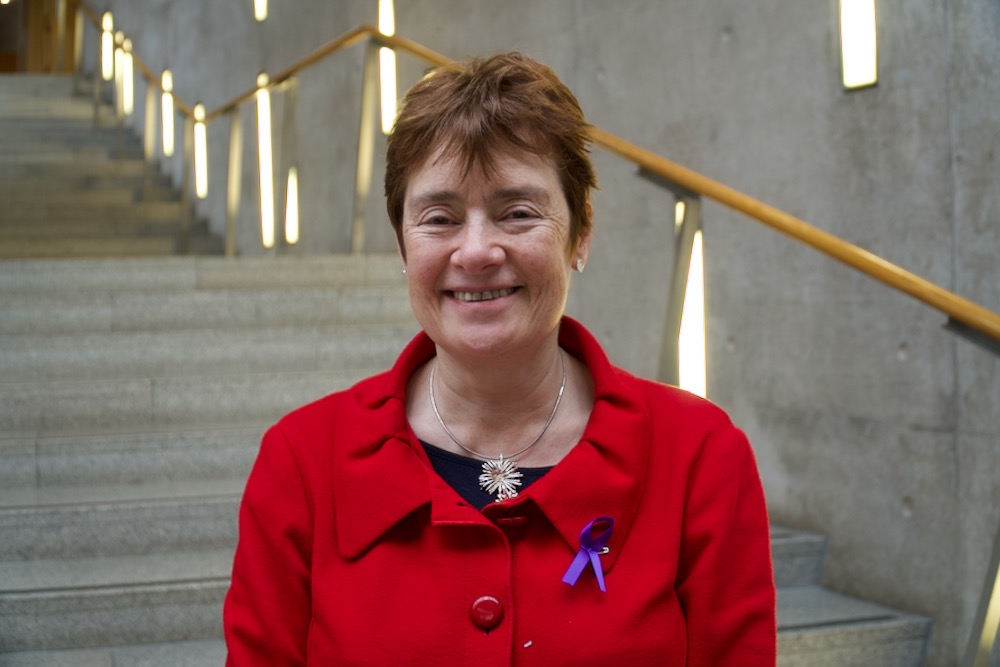
Sarah Boyack was first elected at the very beginning of The Scottish Parliament, then she lost her seat but has now come back ready to deal with housing and planning matters which is where her specialism lies.
She was formerly Minister for Transport and Environment and then Minister for Transport and Planning introducing one of Scottish Labour’s best known policies – free travel for those over 60. She has represented both the Edinburgh Central constituency and has been a list MSP. She is now spokesperson for Communities and Local Government.
Sarah spoke to us during a busy day at Holyrood a few weeks ago after which we had to leave the interview to the side while the General Election campaign diverted our attention.
She explained she is ready for the new challenge.
What were you doing whilst you were away first of all?
“Well, the first few months, I went in and started working at Heriot-Watt University where I used to be a lecturer before I got elected in 1999. I taught town planning students architects chartered surveyors building engineers. And what really struck me was how far things have moved on in terms of young people’s awareness of climate change, and how we re-engineer our towns and cities so I did that up until the April of 2017.
“And then I got a job with The Scottish Federation of Housing Associations, which was fantastic because for somebody who has campaigned for affordable housing for all my adult life to be able to go in and lobby for that was great.
“And the way I describe it as when I was in the parliament first off, I used to get complaints and used to deal with constituents’ issues going directly to housing associations or private landlords or the council, then I got to see the best of housing associations for two and a half years. And now I’m back – I’m back dealing with where things have gone wrong, antisocial behaviour, getting people the right tenancy or accessible housing. So it’s a really useful experience to have.
“And I kind of feel I’m back in the thick of it now back in the parliament.”
So how is it to be back? Are there things that you perhaps had started before that you’re picking up on or is it all new stuff.
“In some ways, this place feels different, because there are more parliamentary questions to Ministers that the Presiding Officer has initiated. That’s good. I would say what what I worked on before I left I was working on a Member’s Bill on the Tourism levy. So that is a tick in the box! It is centre stage.
“I’m getting to work on that issue again, on the local government committee. I would say one of the things I’ve come back to is the issue of homelessness, and the issue of people getting access to NHS treatment. So right through, everybody focuses rightly on the problems in hospitals, particularly the Sick Kids, and the huge delays and the problems and the overruns there in terms of cost. But getting access to GPS, getting support for social care, getting the care people need on mental health, particularly for children. Those issues have been centre stage the last few weeks in terms of the issues people are bringing up to me, in terms of casework.”
How do you feel that, you know, The Scottish Parliament here works with the local council? Do you think that’s a good merge?
“What I’ve been trying to do in the last few weeks is make sure that the voice of Edinburgh residents and the challenges the council faces are actually heard in parliament. Because I do feel certainly since the SNP took over the leadership, that there’s been less upfront challenge or request for resource.
“So things like housing, things like social care or health and social care agenda, Some really good stuff I’ve been working with Cammy Day – that’s Councillor Cammy Day the Deputy Leader of Edinburgh Council – and the work he’s doing on poverty reduction is fantastic.
“But as you say, these are long term issues. So for me short term, it would be health and social care and funding.
“Councils are underfunded, and we’ve got a particular problem in Edinburgh, which is that we are not just short of affordable housing – and by affordable housing I obviously mean social housing, whether it’s council or coop or housing association, but the cost of private rent is just increasing because it’s a rationing process.
“So is the cost of housing to buy, and I know people, particularly young families, who would historically have lived in Edinburgh, they went to university here they’ve had kids that have moved out to Fife. So they live in areas like Dunfermline a lot of people who used to live in Edinburgh. But you can see the same thing in West Lothian in Midlothian.
“The greenbelt around Edinburgh is under massive pressure. So that issue of losing properties so a long time ago we’d be losing to bed and breakfast or hotels for whole units in the city centre. So maybe 10 flats would all go into one hotel. Now what we’ve got is Airbnb. And when I say Airbnb, it’s short term lets in general, there’s lots of different providers, but it’s a major problem for us.”
But was this one of the things that you did whilst you were an MSP before I seem to remember it was you know Sarah Boyack and party flats were all the words ran together.
“Interestingly, I have not had so many party flats issues. But the issues wll one of the issues I worked on when I was away before I got my last job was I worked on the law of tenement issues with a group of people coming together to look at how can we ensure that flats actually get the repairs they need.
“So short term lets can be an issue. In the stair it can be a can be either a litter or an anti social behaviour issue or even somebody just being noisy and smoking in your stair. One of the things that three and a half years old is obvious os a lot of stairs have got key boxes outside. It’s a bit of a giveaway and that really tells you that that property is rented out.
“In some areas it can actually be because an older person has a carer coming to look after them. But mostly in the city centre. we’re talking flats that are rented out.
“So I would say that’s accelerated since I left the parliament. So I’m going to have to redouble efforts on the amount of housing that’s available, a much tougher look at how many properties are not actually available to Edinburgh residents anymore.
“And as a capital city, that’s got a tourism industry it’s not about choosing between the two – it’s about getting a balance.”
When is the Scottish government going to decide on the tourism levy?
“Well, that’s something I’ve asked questions about since I’ve arrived back, I am absolutely convinced has to be in place before the next Scottish Parliament elections. There’s one or two bits of legislation that I think are important. There’s that, then there’s something called compulsory sale orders, which is another tool in the box for land reform.
“In the last parliament, we enabled communities to get access to properties that weren’t being used or have been left derelict and vacant. So you’re beginning to see communities come through.”
So a wee bit like a community buyout then?
“Yes we had that in the rural areas of Scotland. But in the last parliament, just three years ago, we extended that to urban areas. So people are beginning to use that opportunity. But there’s also, there’s some parts of Edinburgh where you’ve just got vacant properties and people are waiting for something to happen so that they can make money on the property. And that brings down an area, but it’s also a missed opportunity in terms of housing.”
But then that that completely is completely at odds with using greenbelt land for housing. You would think that you would just use what’s there first but of course that is the more expensive route?
“Sometimes it can be more expensive, especially if you’re dealing with an area that’s had properties in it that has to be cleared. And one of the things that we’ve seen in the north of the city is quite big redevelopments around the Granton area. So there is development taking place, and you can have relatively dense housing that is of high quality.”
There are some lovely houses just round the back of Pennywell shops, there’s some beautiful housing there.
“Yes there’s some really good housing going up. One of the bits of unfinished business actually is that I think that where somebody applies for planning permission for a vacant site or for a piece of agricultural land, the value rockets, because it’s been given planning permission, that then makes it more expensive for people to buy the land for housing or for development, you’ve still lgot infrastructure, then you’ve got schools. So it’s something called land value capture. So as a former time planner, some am quite interested that we appreciate this parliament.”
So what would you like to happen with that you’d like even though the land has planning permission, you would like it, not to go up in value?
“No what would happen is – the land is there Somebody puts it up for planning permission it gets planning permission, the value of the land rockets, so the local authority would get some of that back, you wouldn’t get all of that profit, but it would get a contribution and that would help with the affordability of putting up new infrastructure, which is something that other Edinburgh taxpayers currently pay for, so I think it’d be something good for our city.
I suppose the other way that that can be paid for those through the section 75 agreements, which the developer has to enter into with the local authority so that they actually then say, Yes, we’ll put up a local primary school or something like that? All too often, though. They’re not, not desperately well enforced –
No so again, this comes back to local authorities having the cash to do what we need to do.
“We need good quality planning, not cutting back to the bare bones. So, for me a lot of unfinished business and it has been a real privilege. Get to campaign on those issues again.
We asked Sarah about the shocking news of Gorgie City farm which went into liquidation in autumn 2019
“Out of the blue and Gorgie City Farm – it’s an institution and the era but it’s been an immense support for many, many families over the years. For local residents, it’s a calm space, to go and visit the animals. See the pets. The experience of having that kind of quality urban area and the biodiversity it brings is something people really value in Gorgie, but it’s a wider benefit to the community. So the absolute need is to get the council to pull people together and make sure that the land is protected, that it’s saved, and that it is still used for that type of use. So a community facility, but also one that’s very much about our local environment.”
So it’s busy now that you’re back here in Holyrood?
“It’s been phenomenally busy. And the first couple of months, I didn’t have any parliamentary staff, because the process advertising for staff and recruitment is not instant.
“So we are fully staffed now so there’s so much to do and those issues of health and access to mental health and young kids waiting months for getting access to support, it’s just not good enough. And things like the Sick Kids hospital, we campaigned to get it – the fact that it’s years late, over budget £1.4 million a month for a hospital that’s empty. And I’ve had lots of parents getting in touch, some of whom were devastated because they’d expected their kids to be moving in the summer. And it was literally a day’s notice I think that people found out they couldn’t move.
“It feels that it is very much the real day to day issues that are not resolved. And for me, the opportunity of being back here is to push for the things that people need in Edinburgh.”

